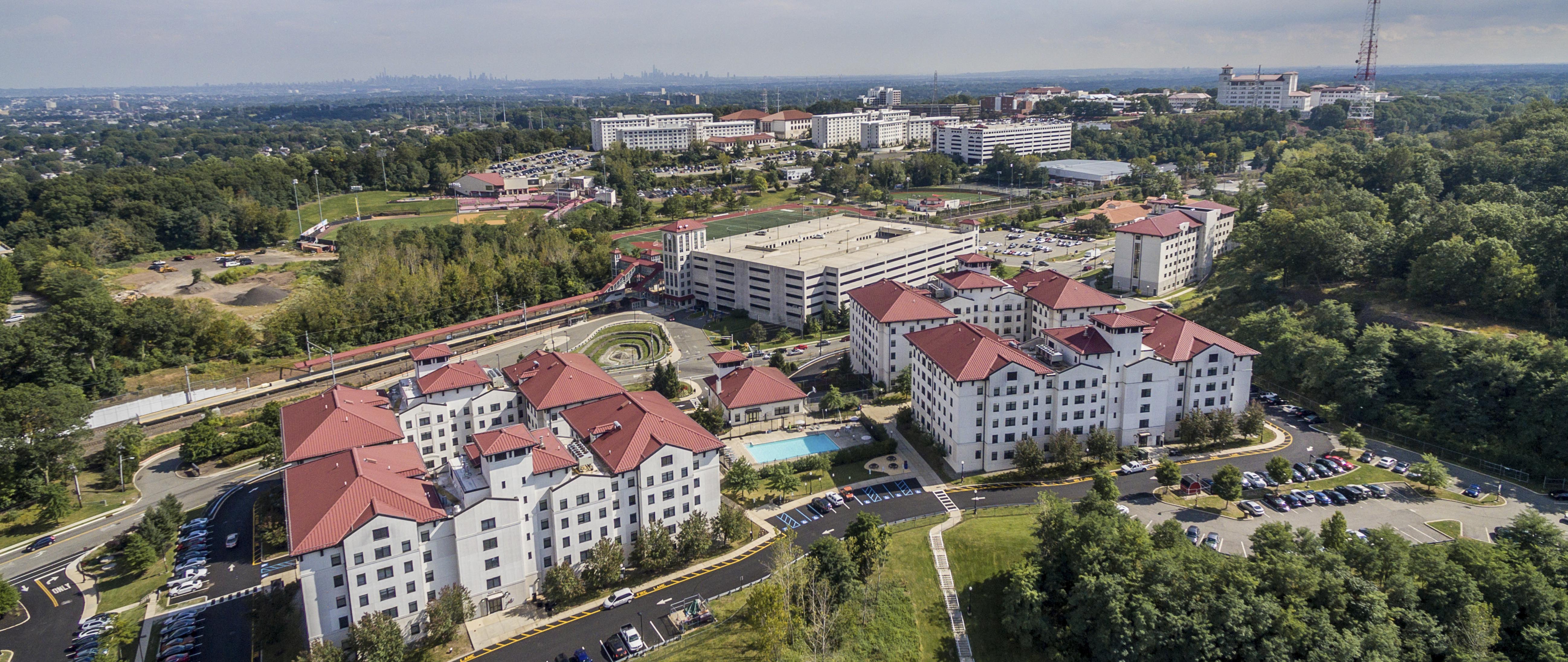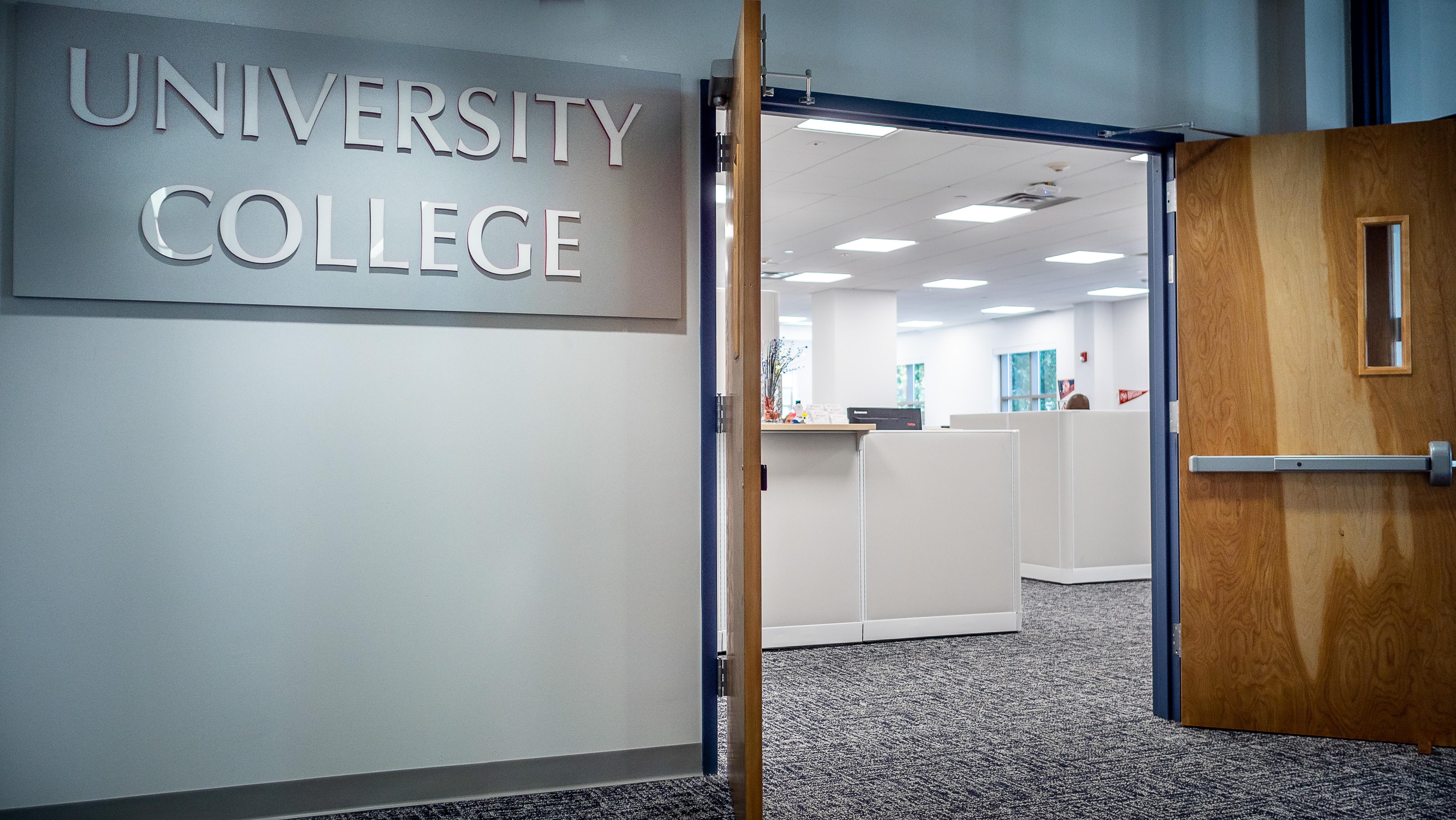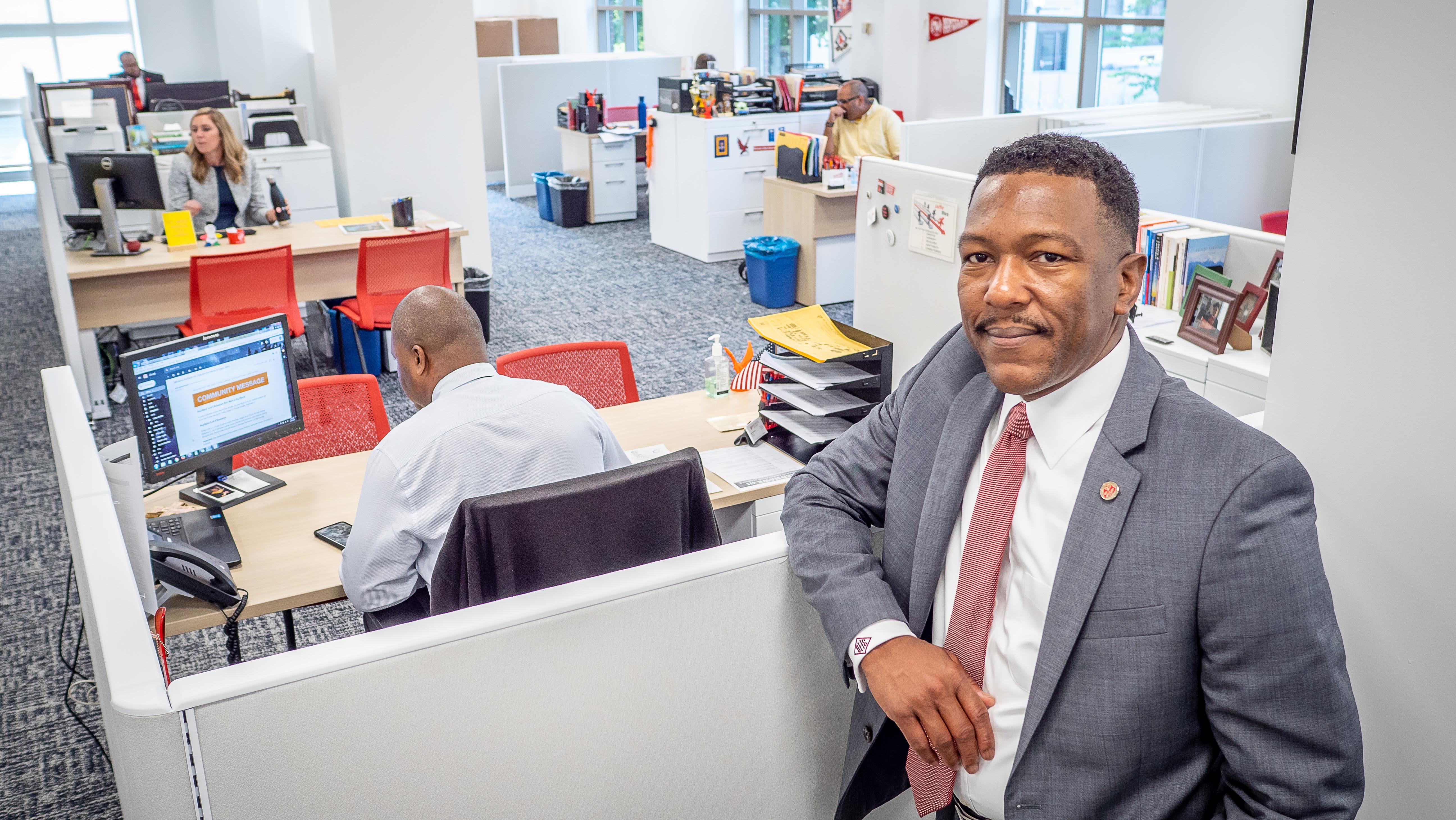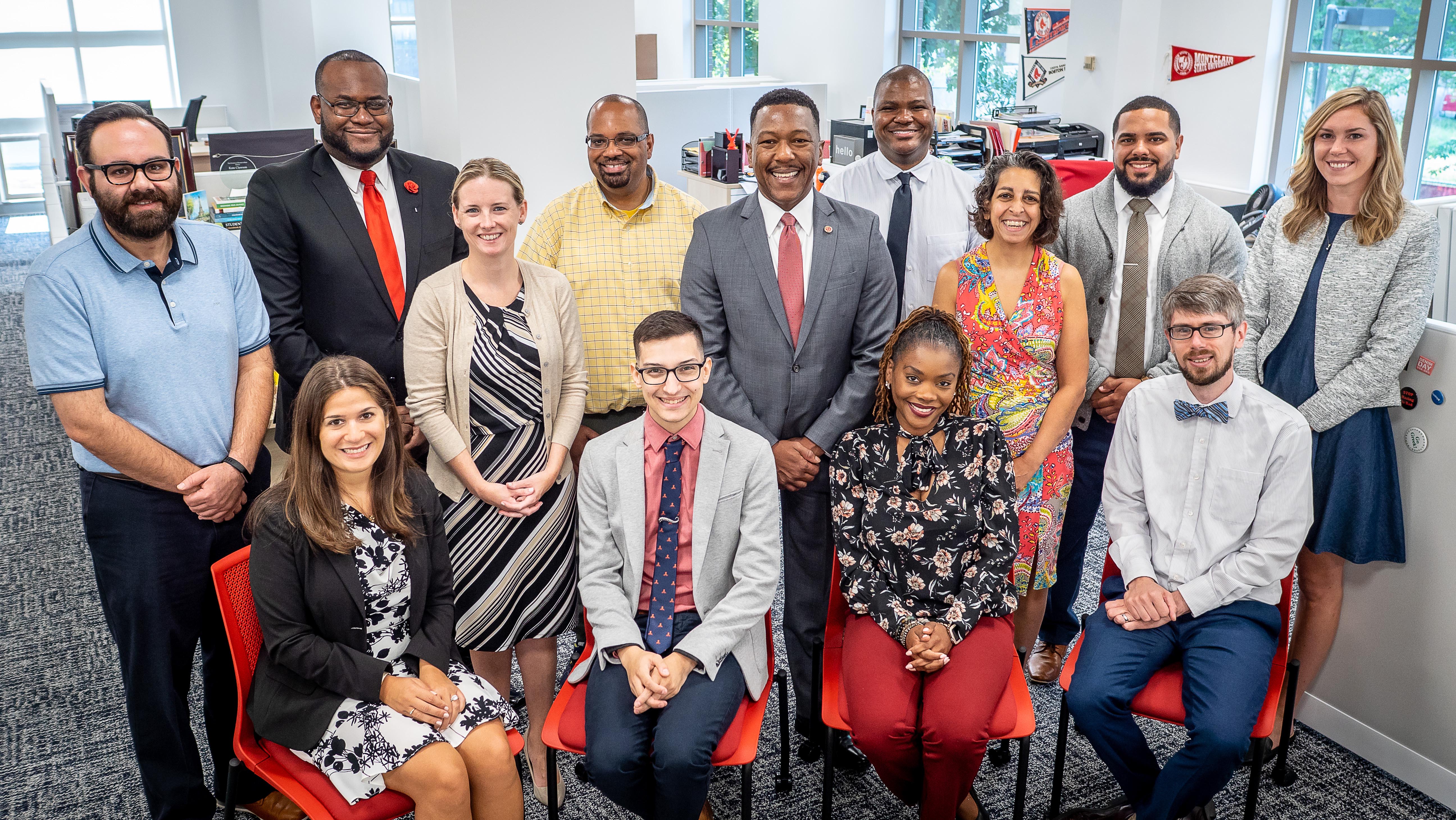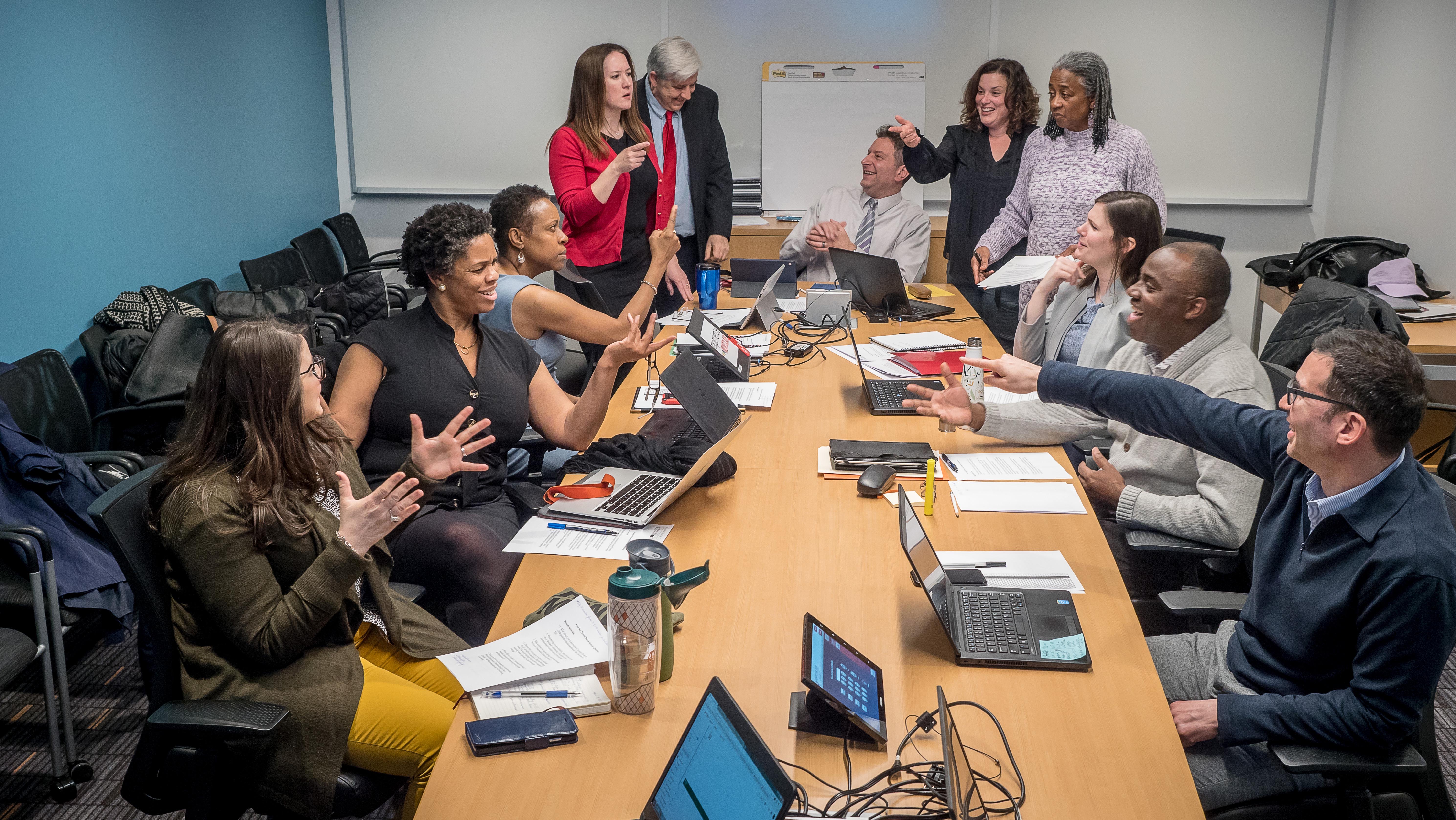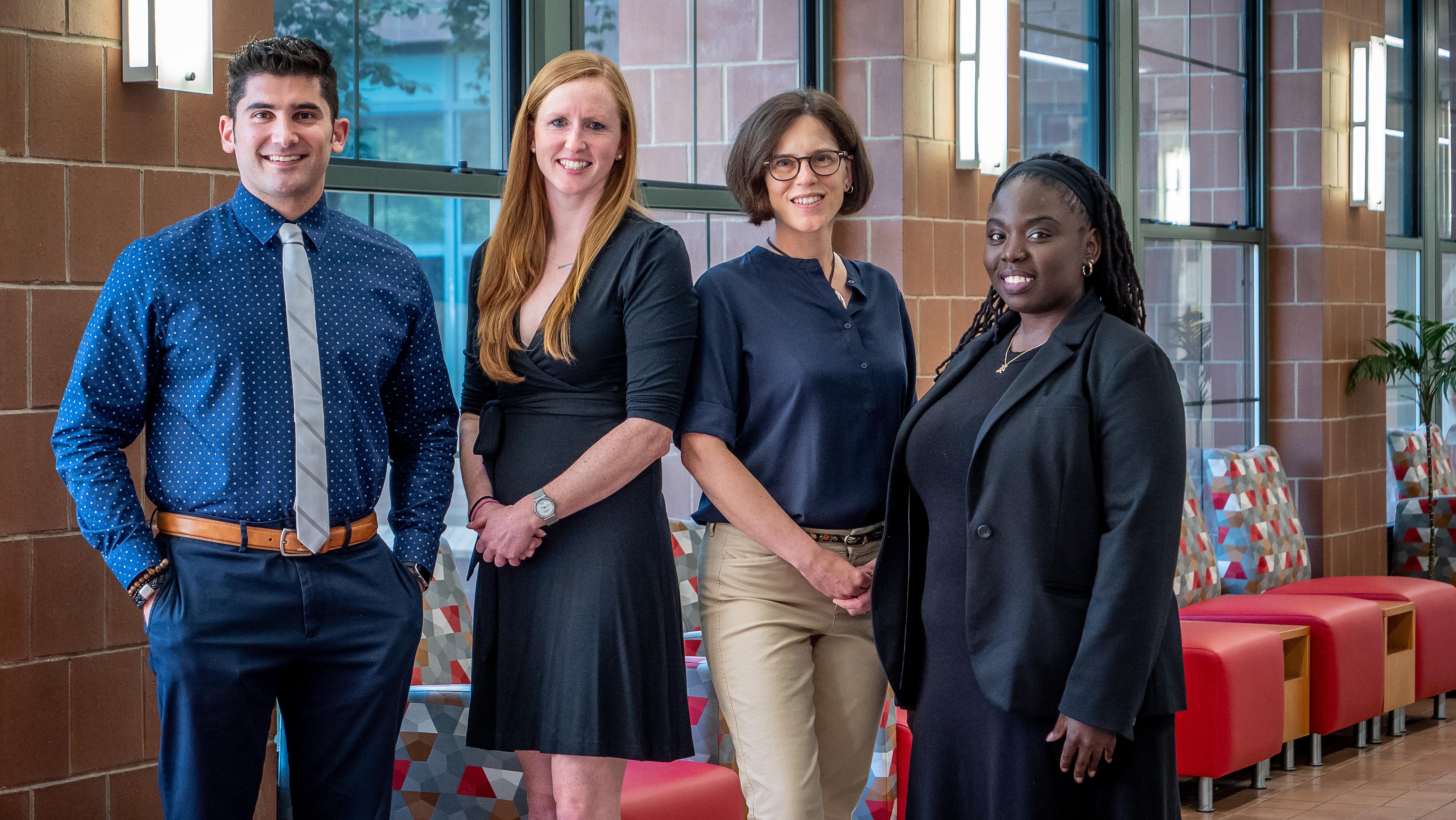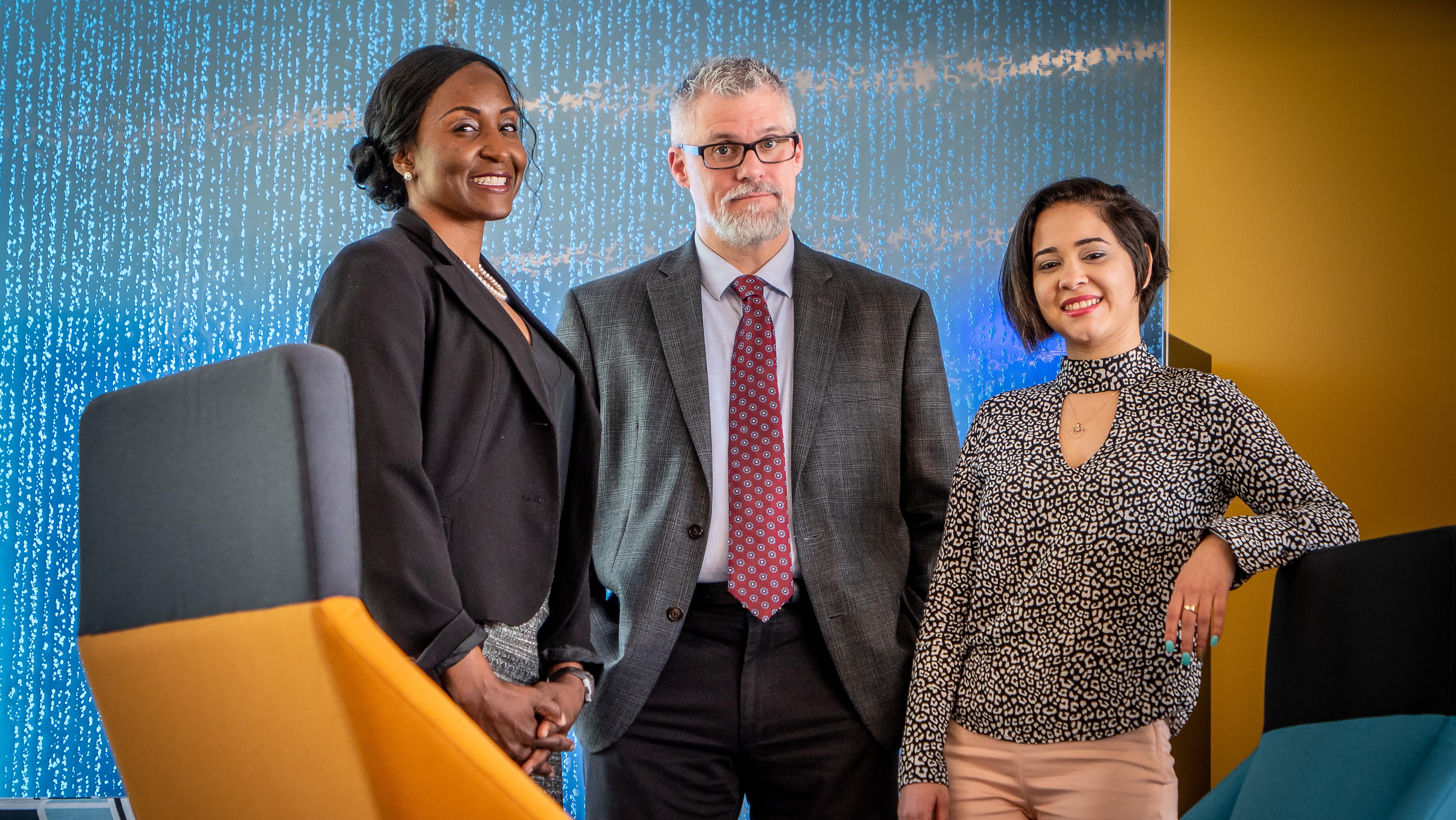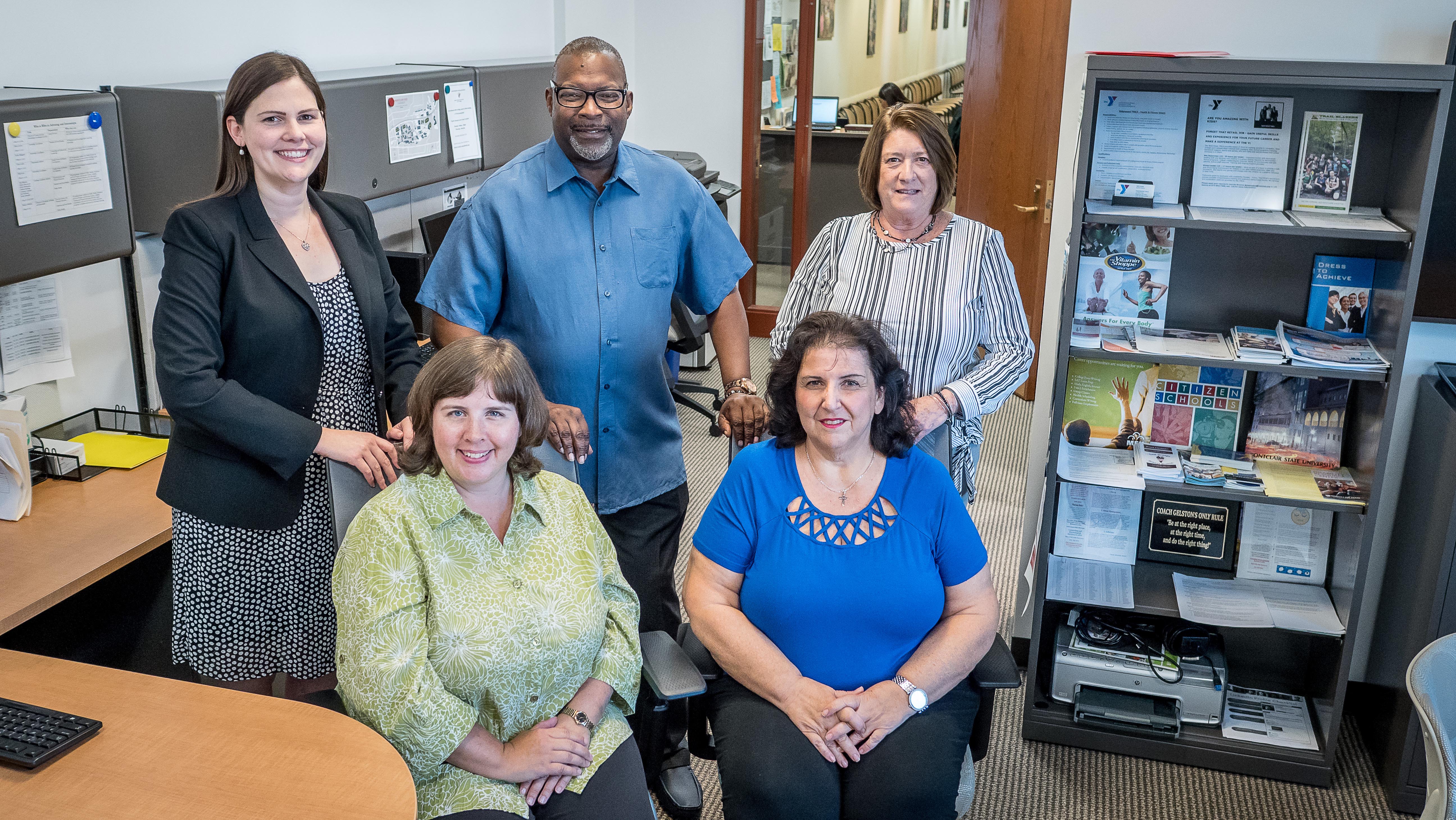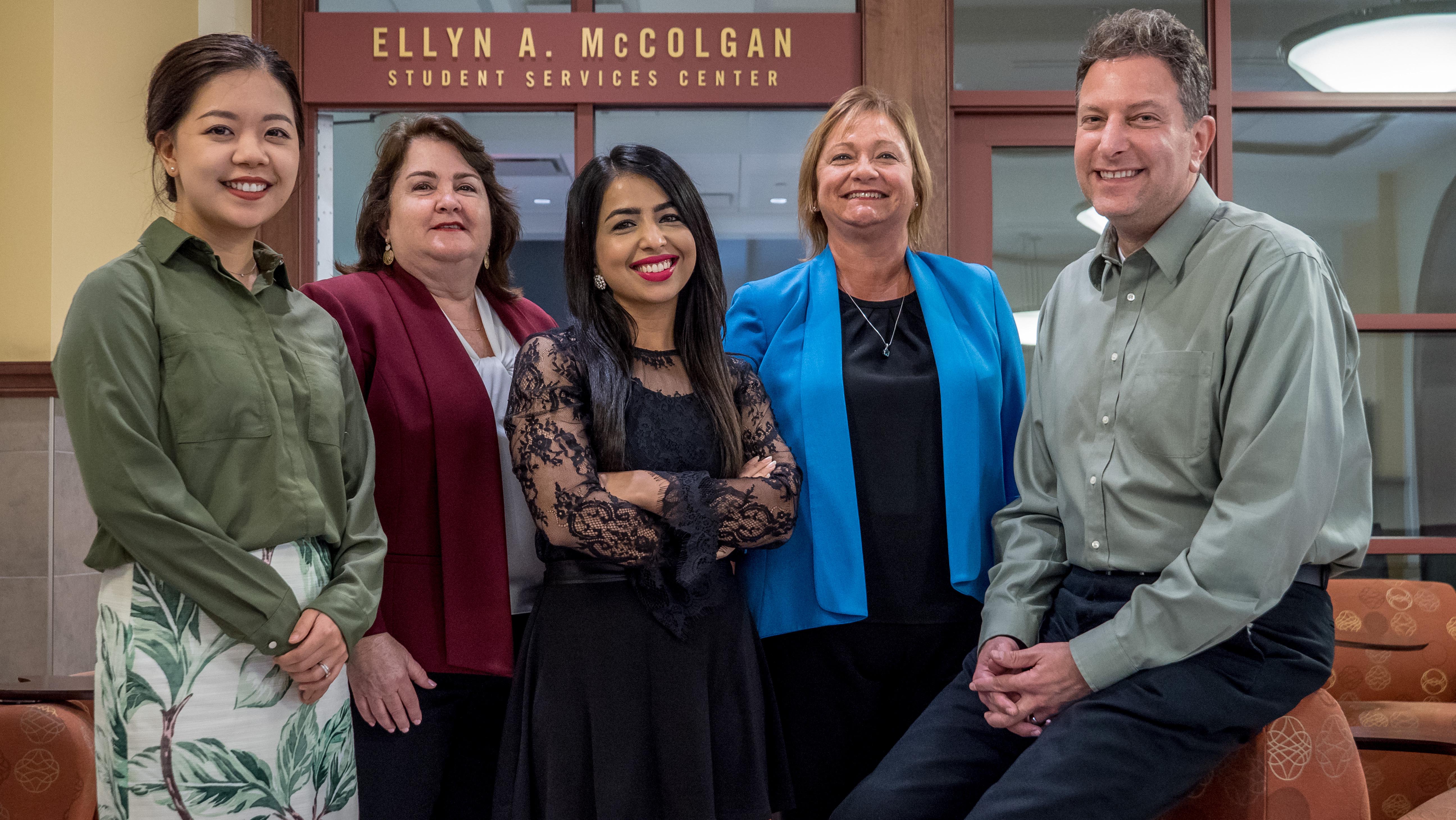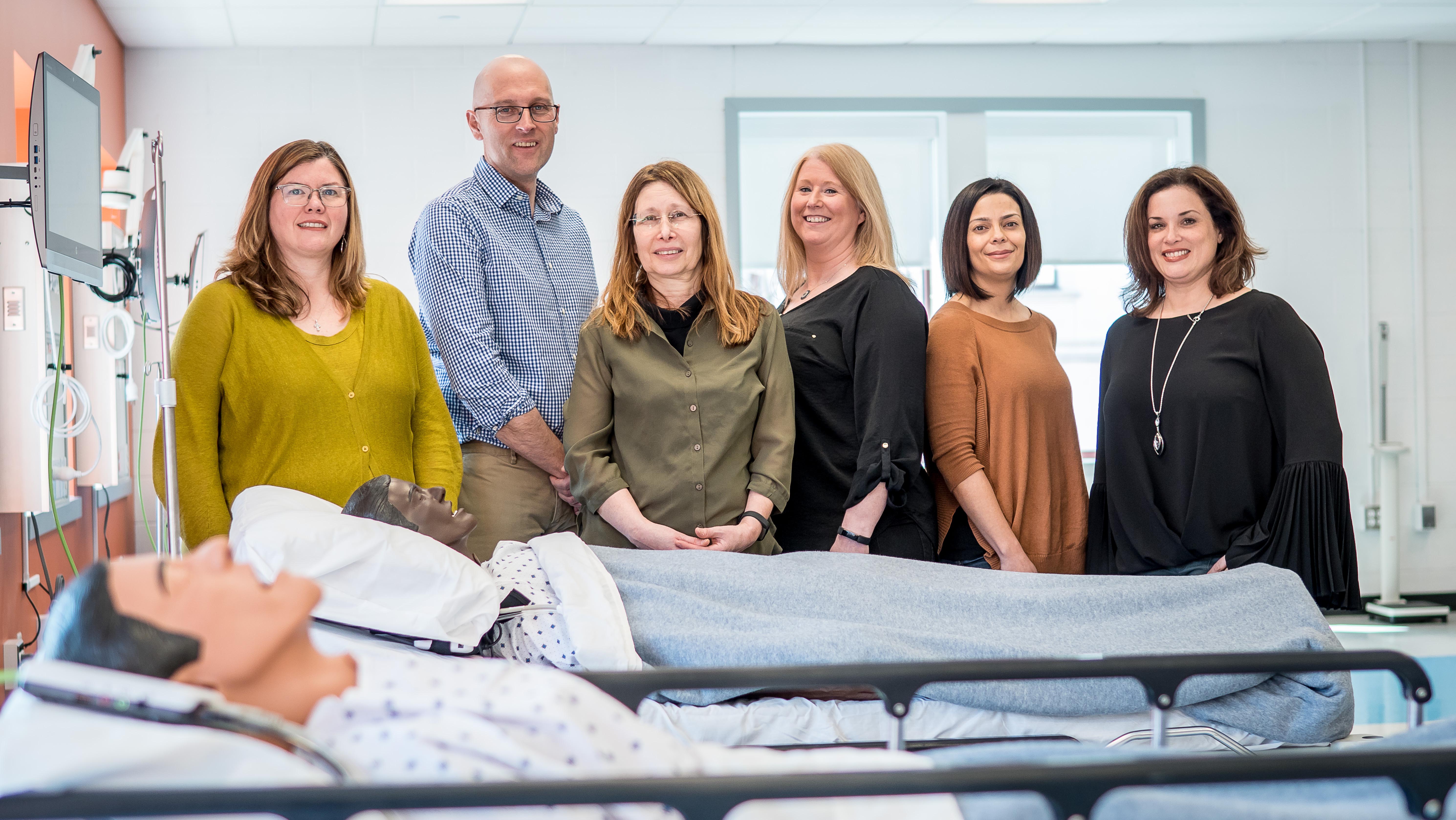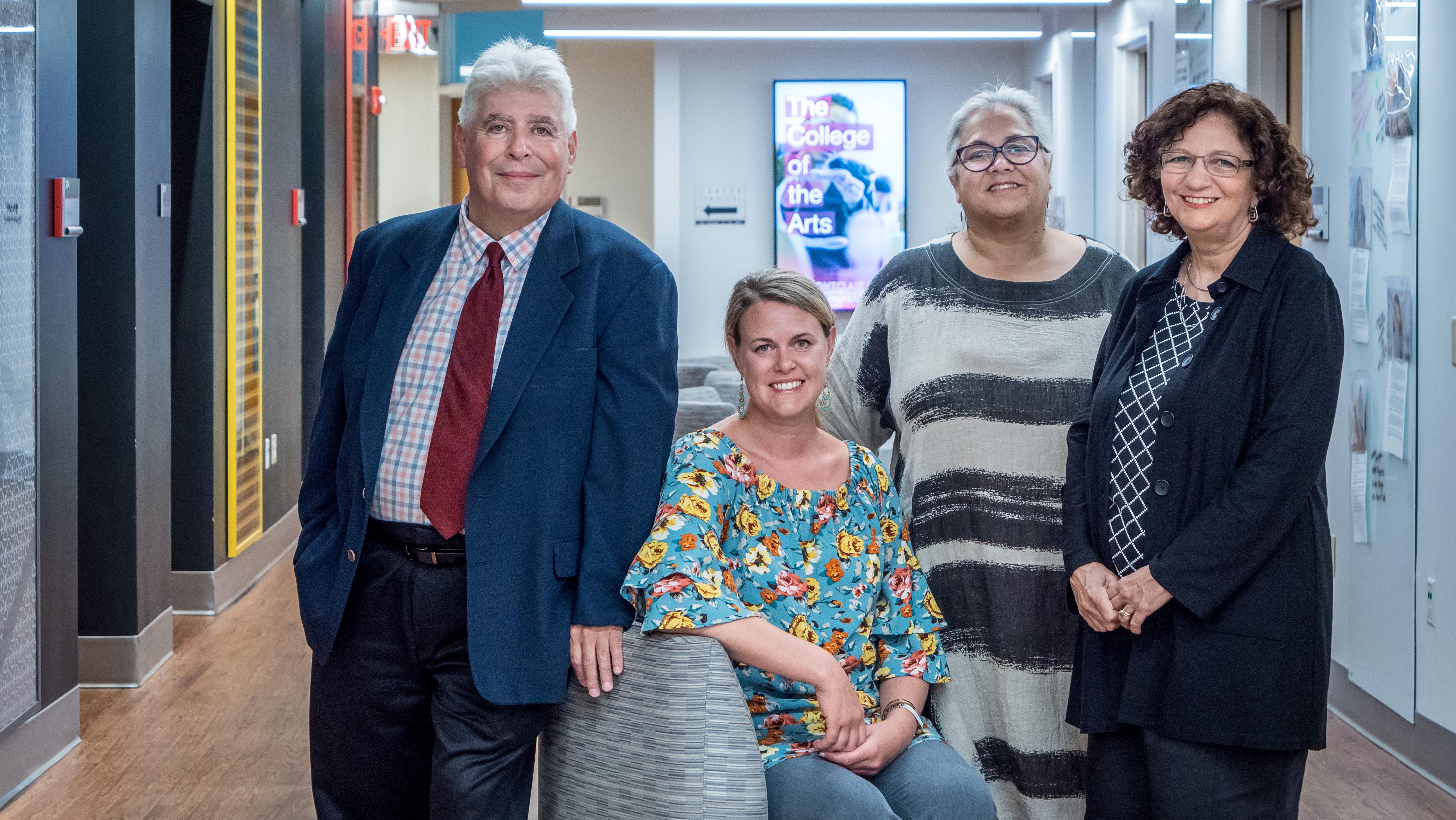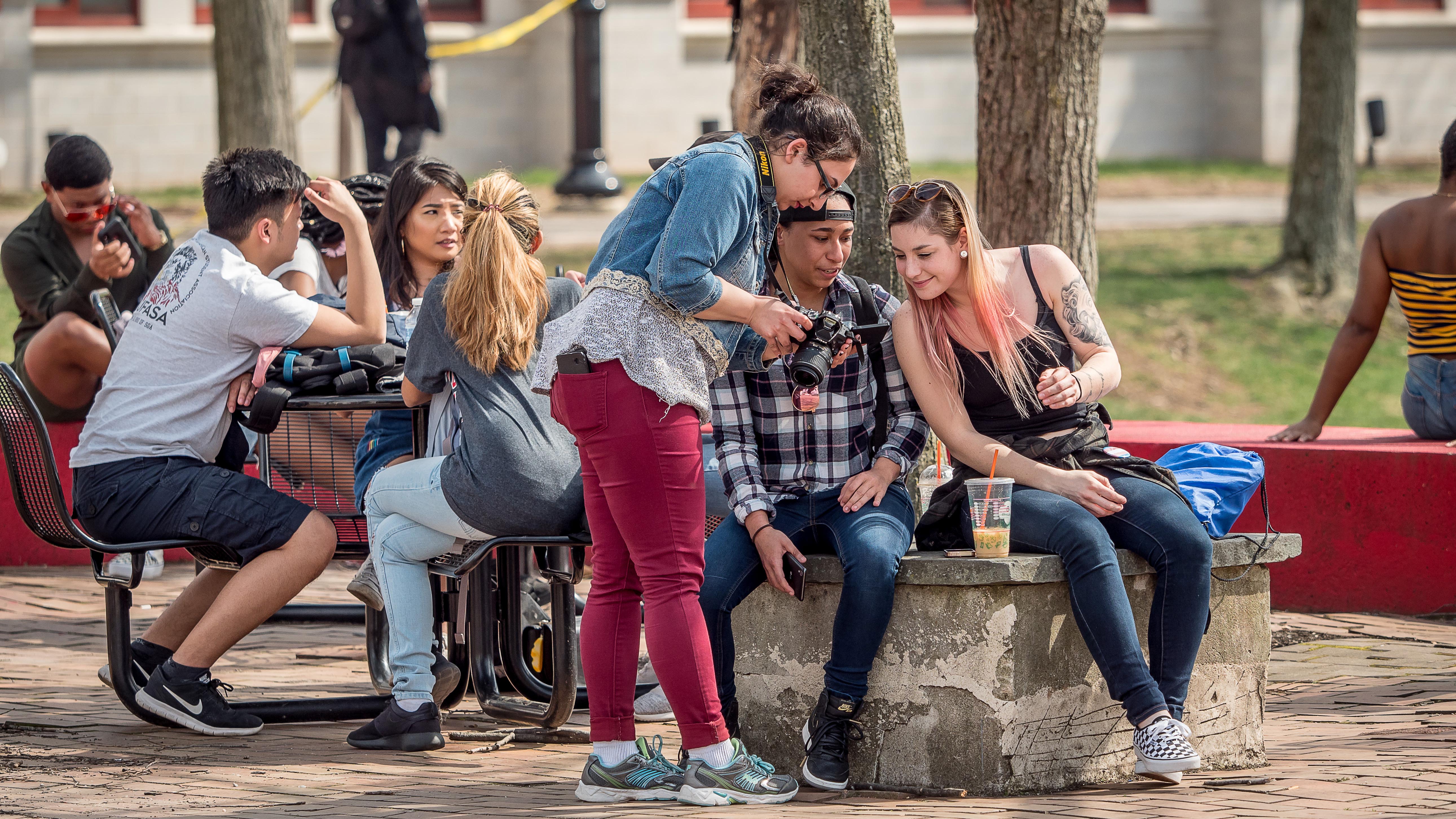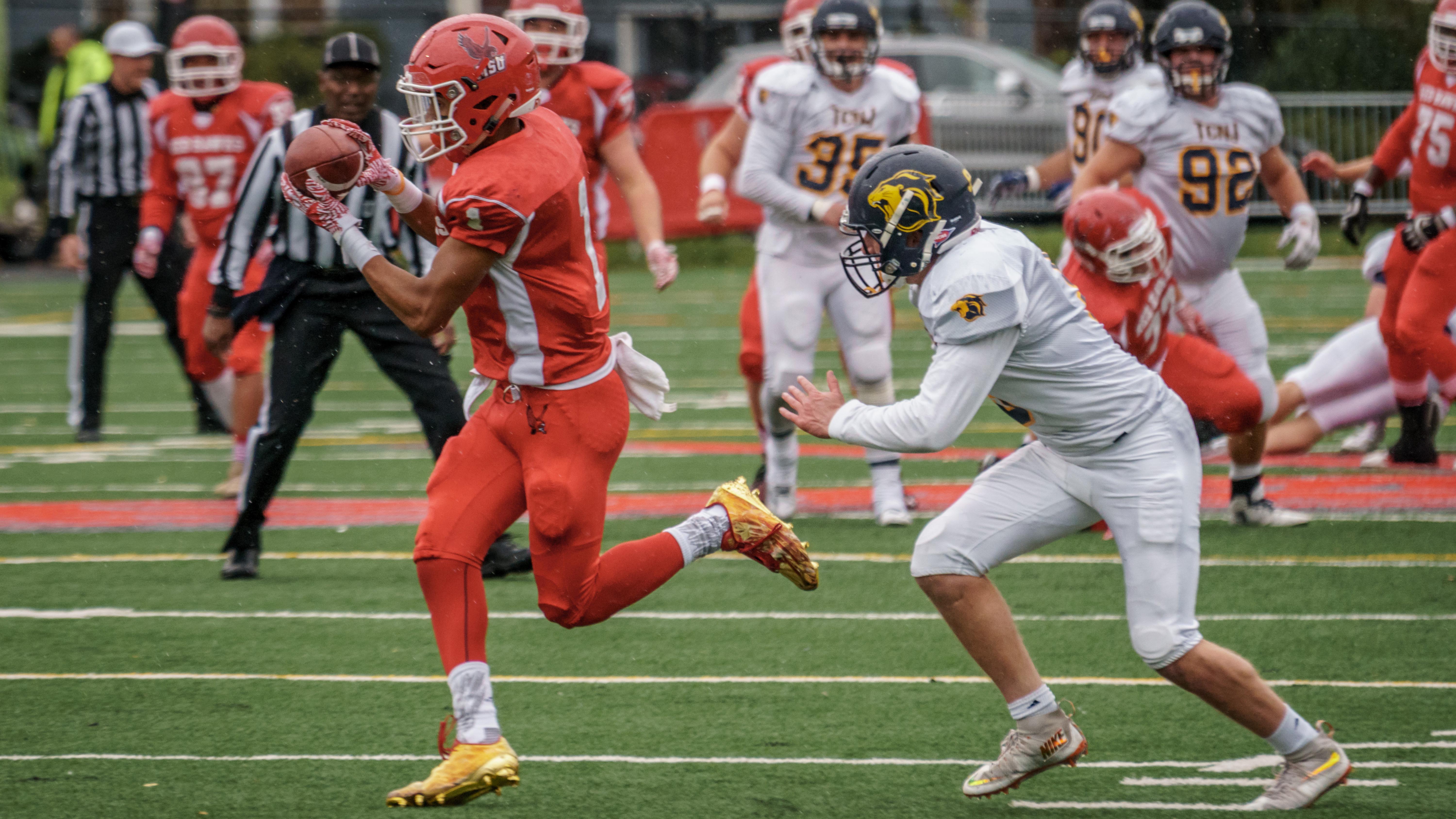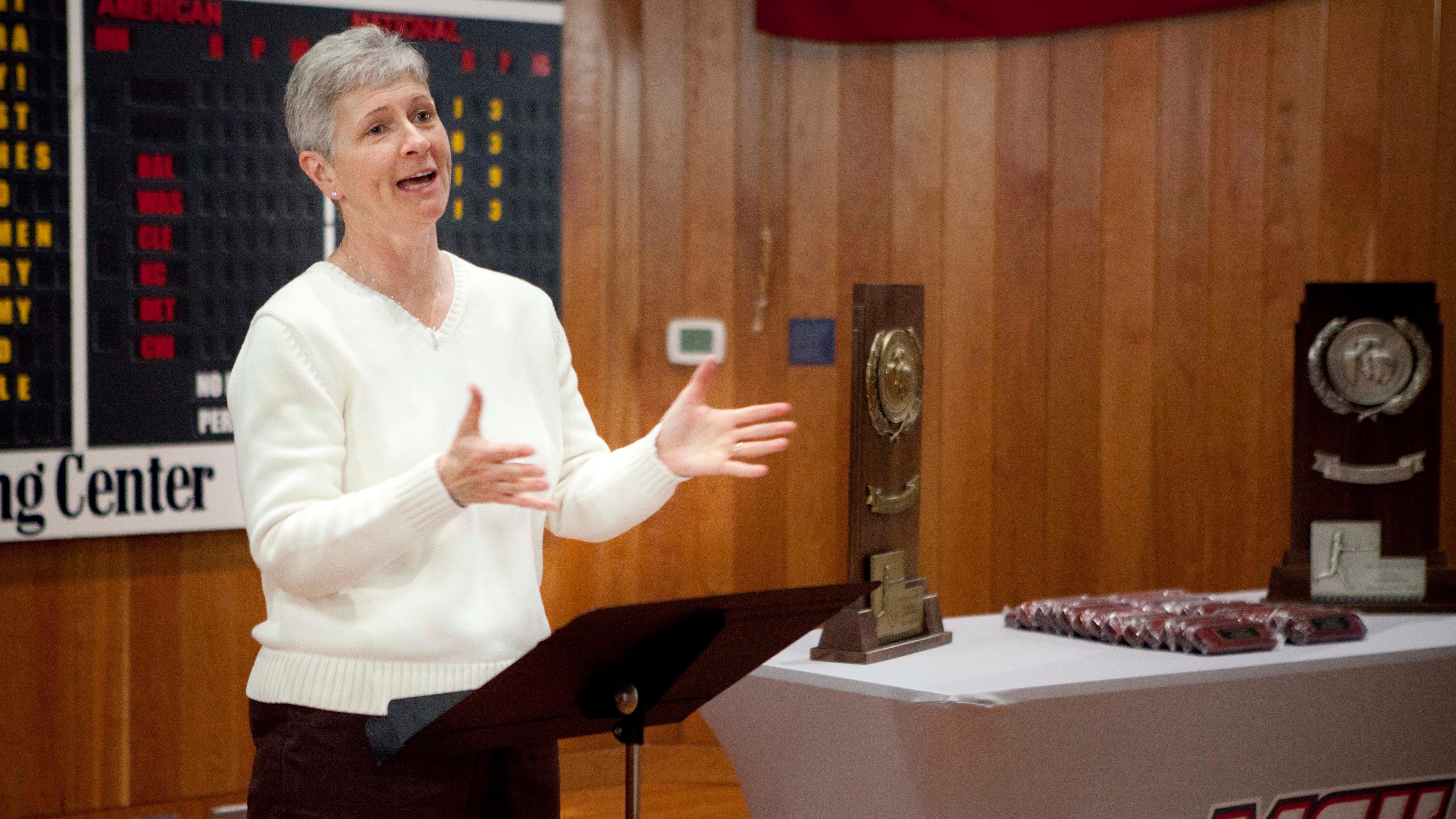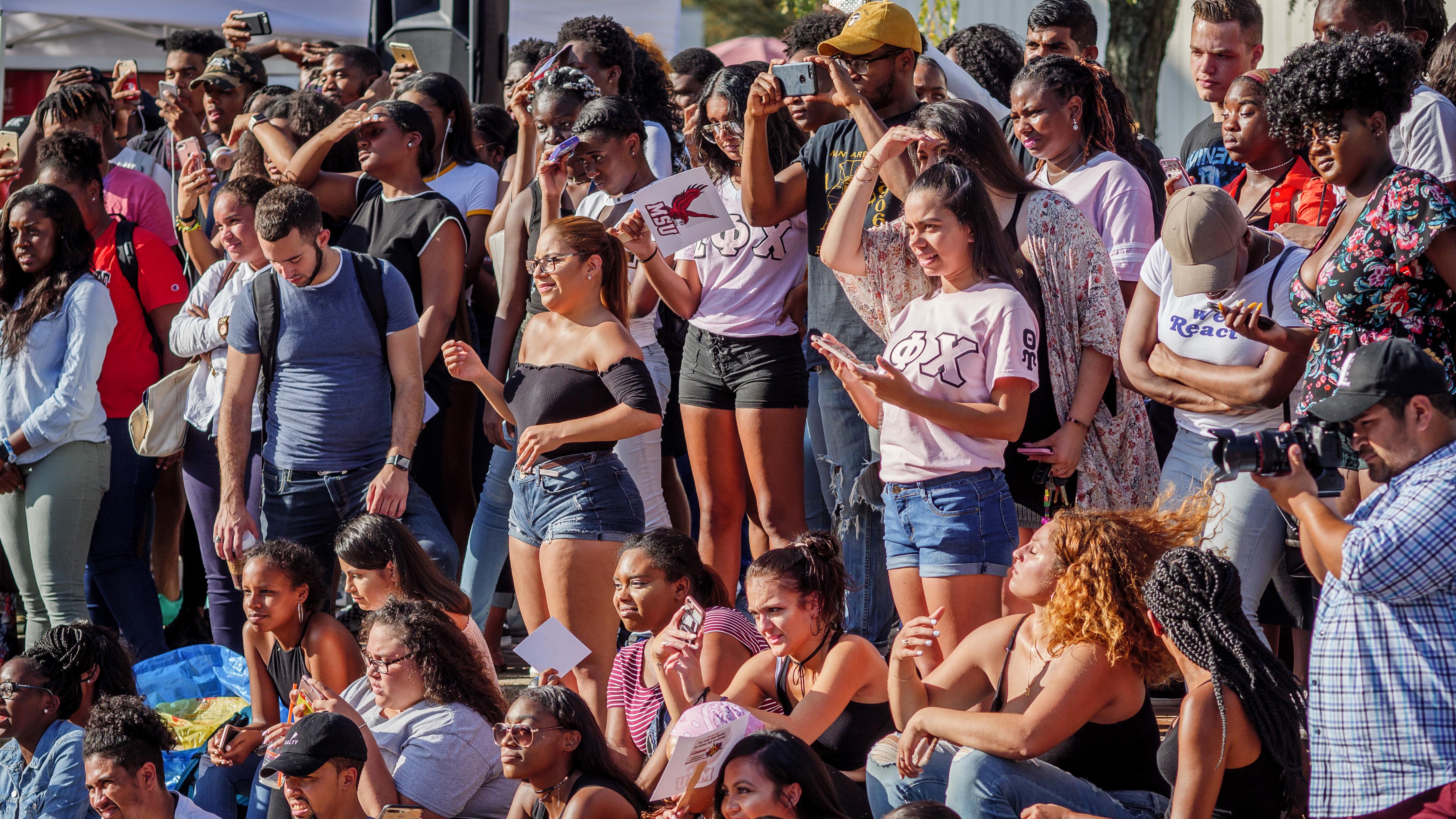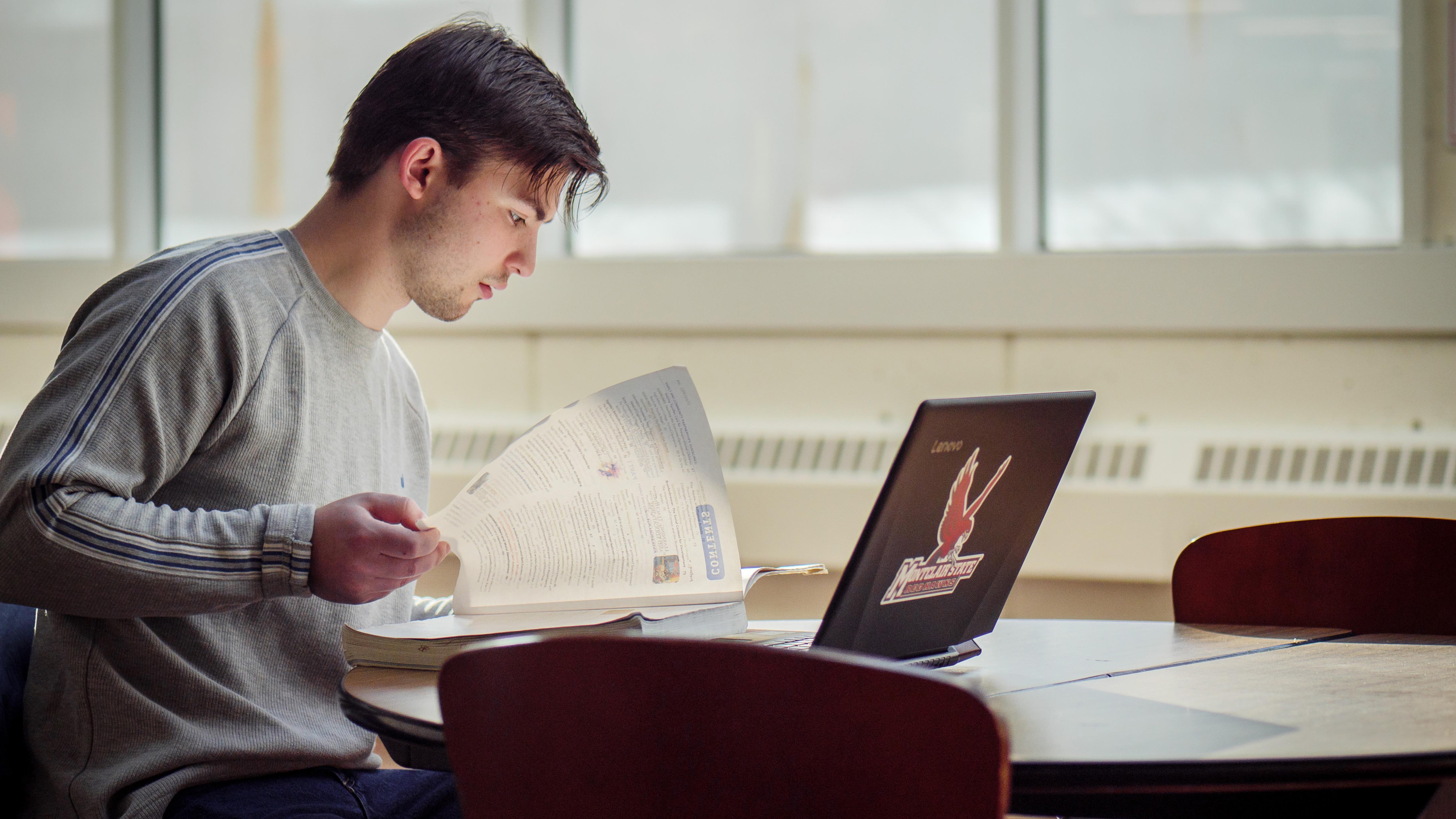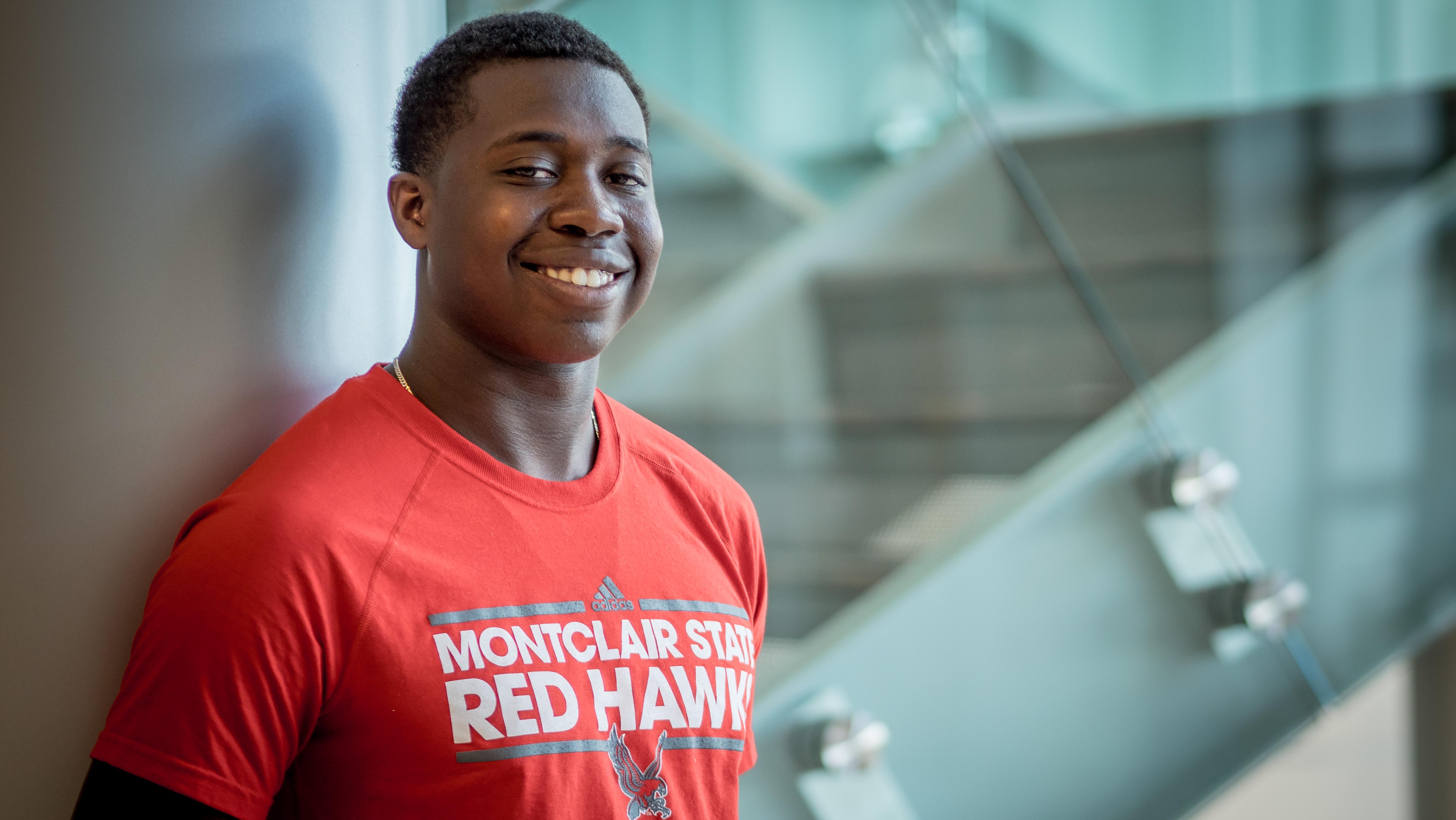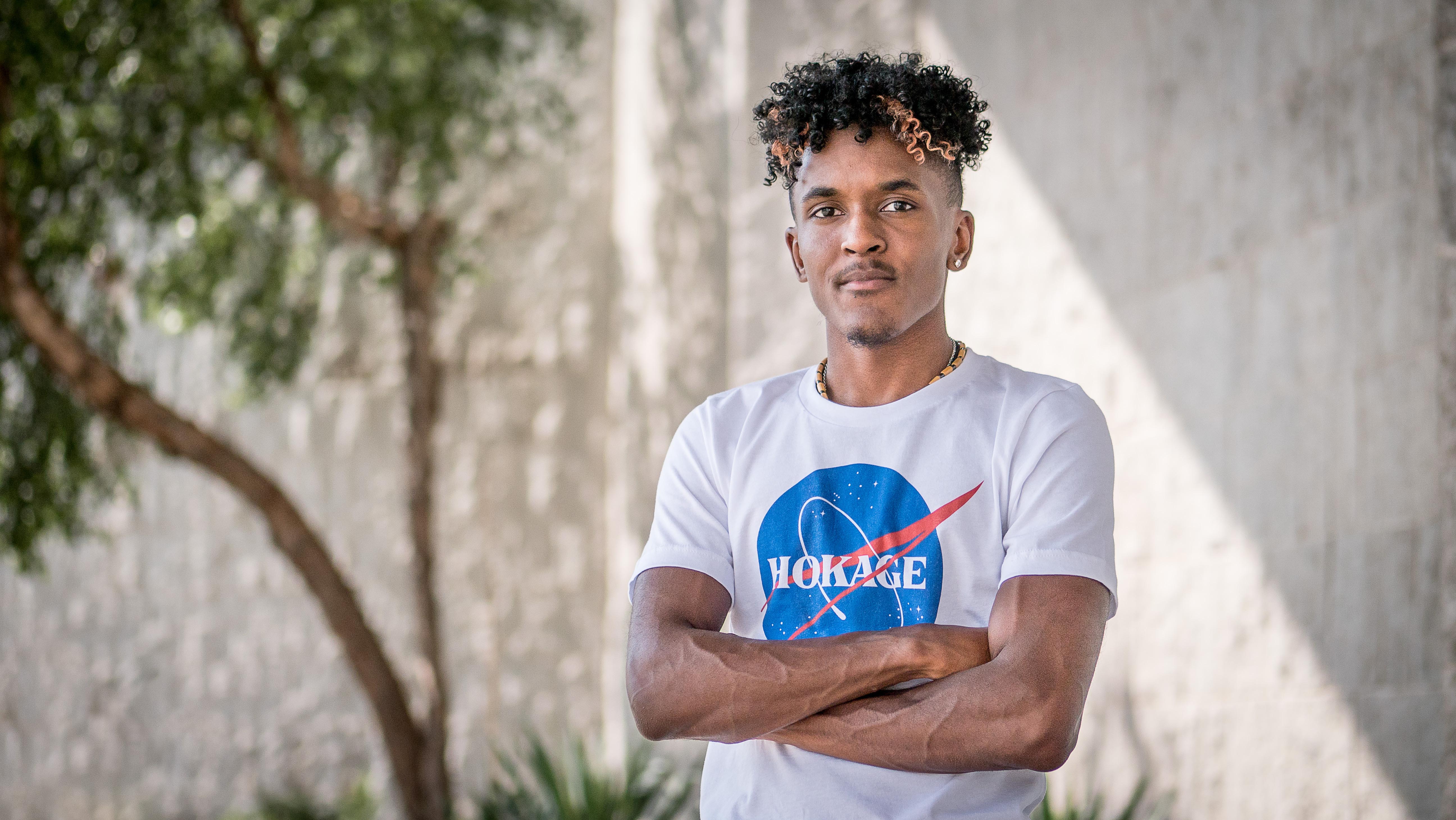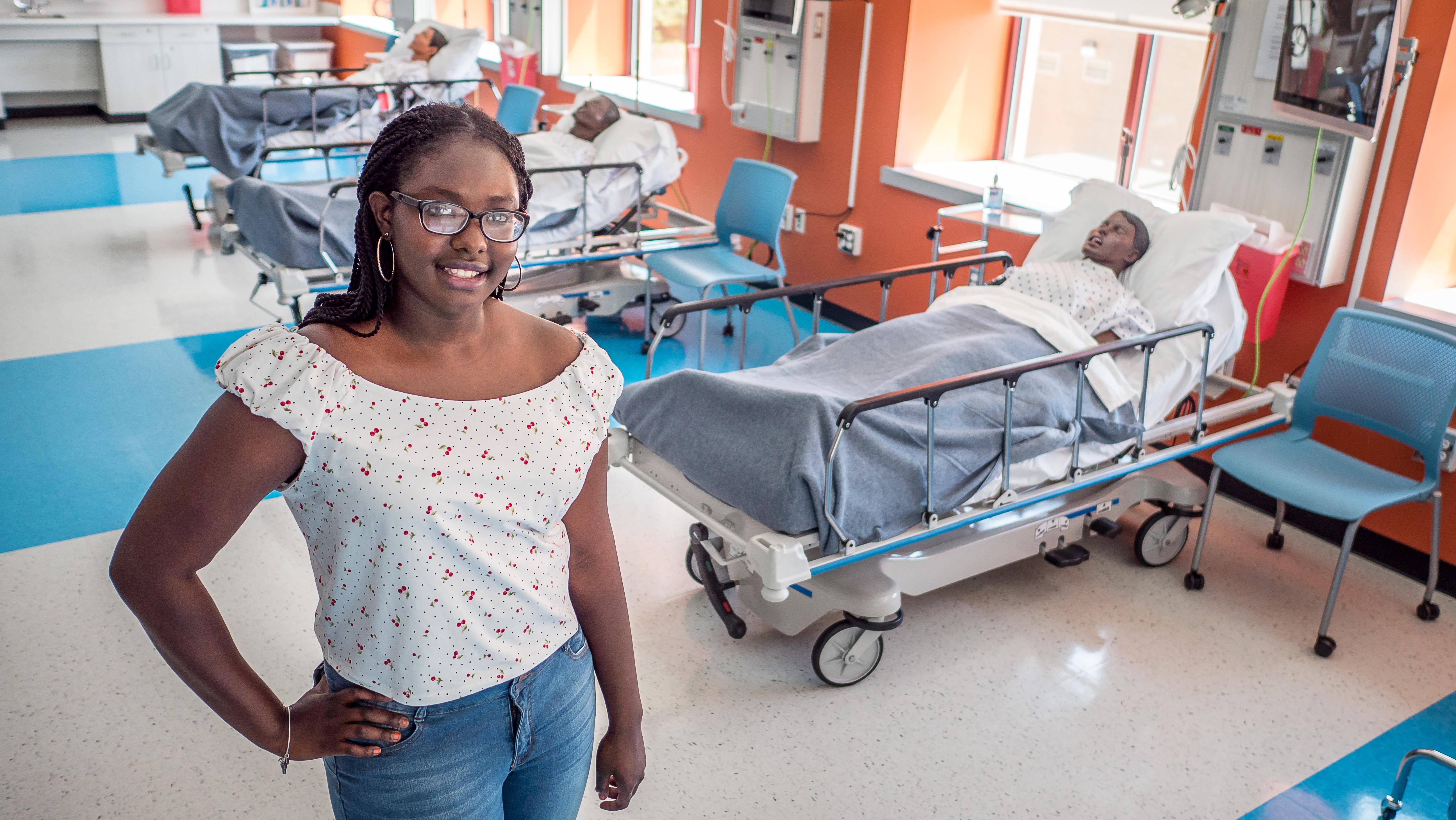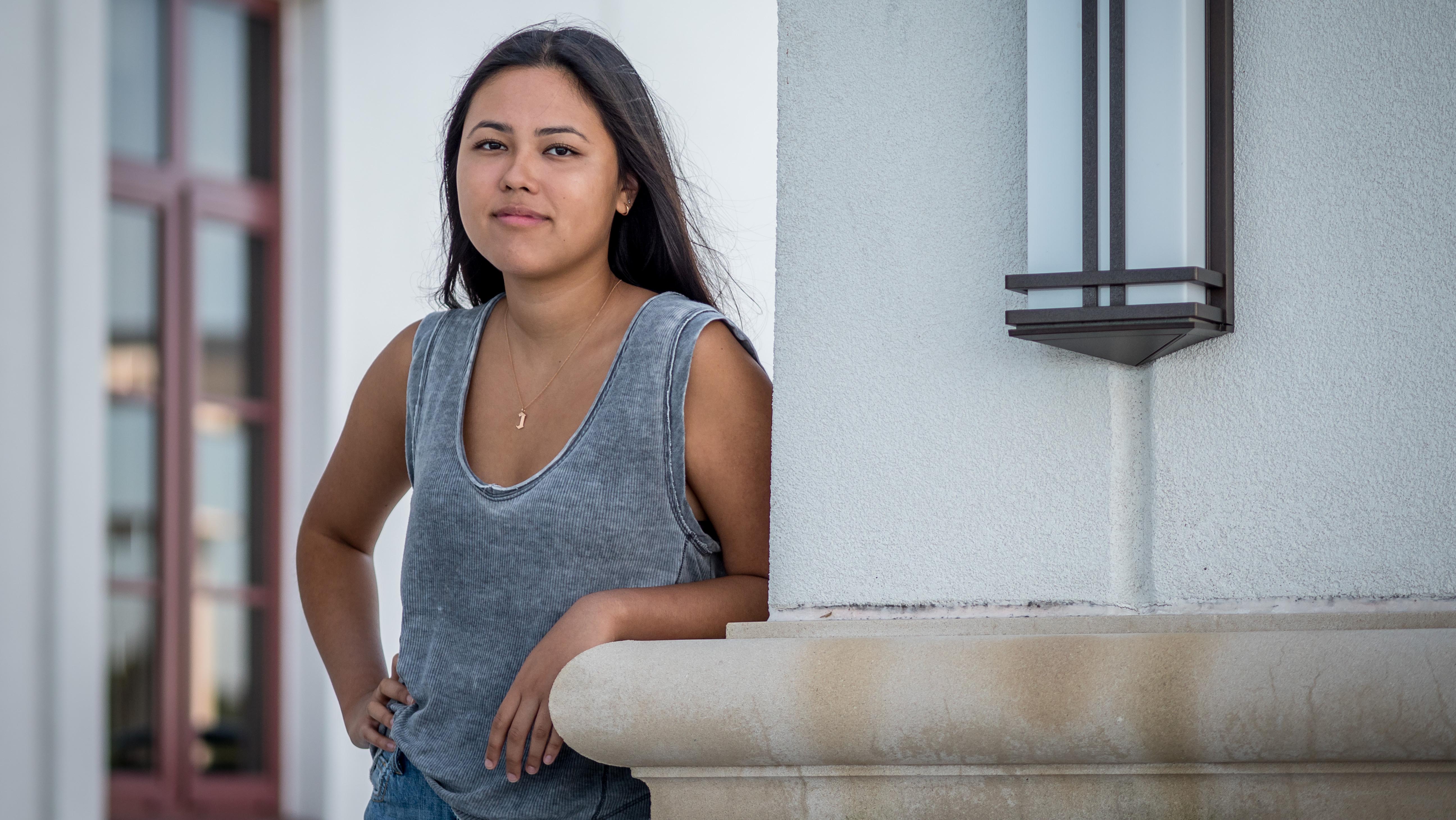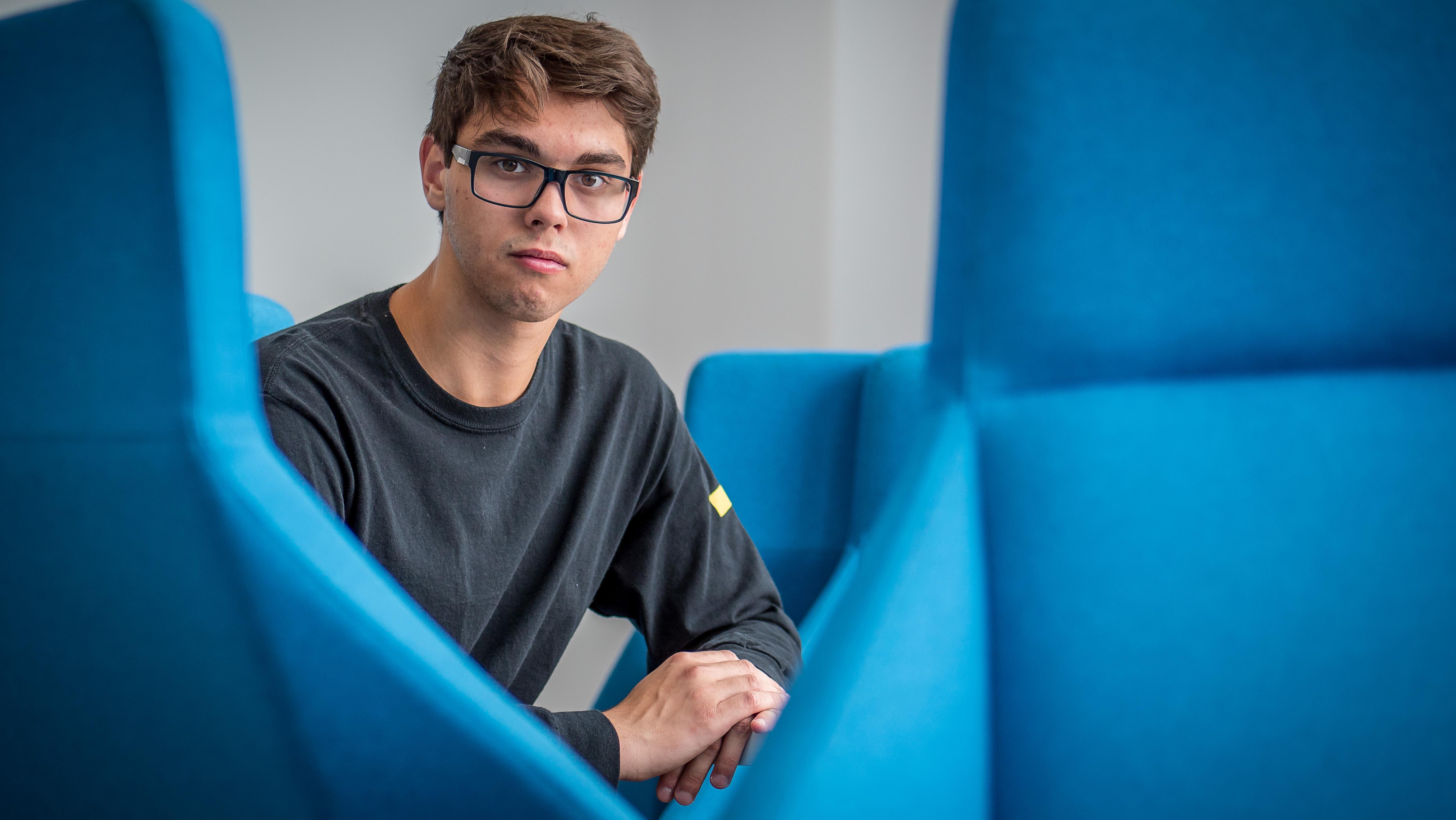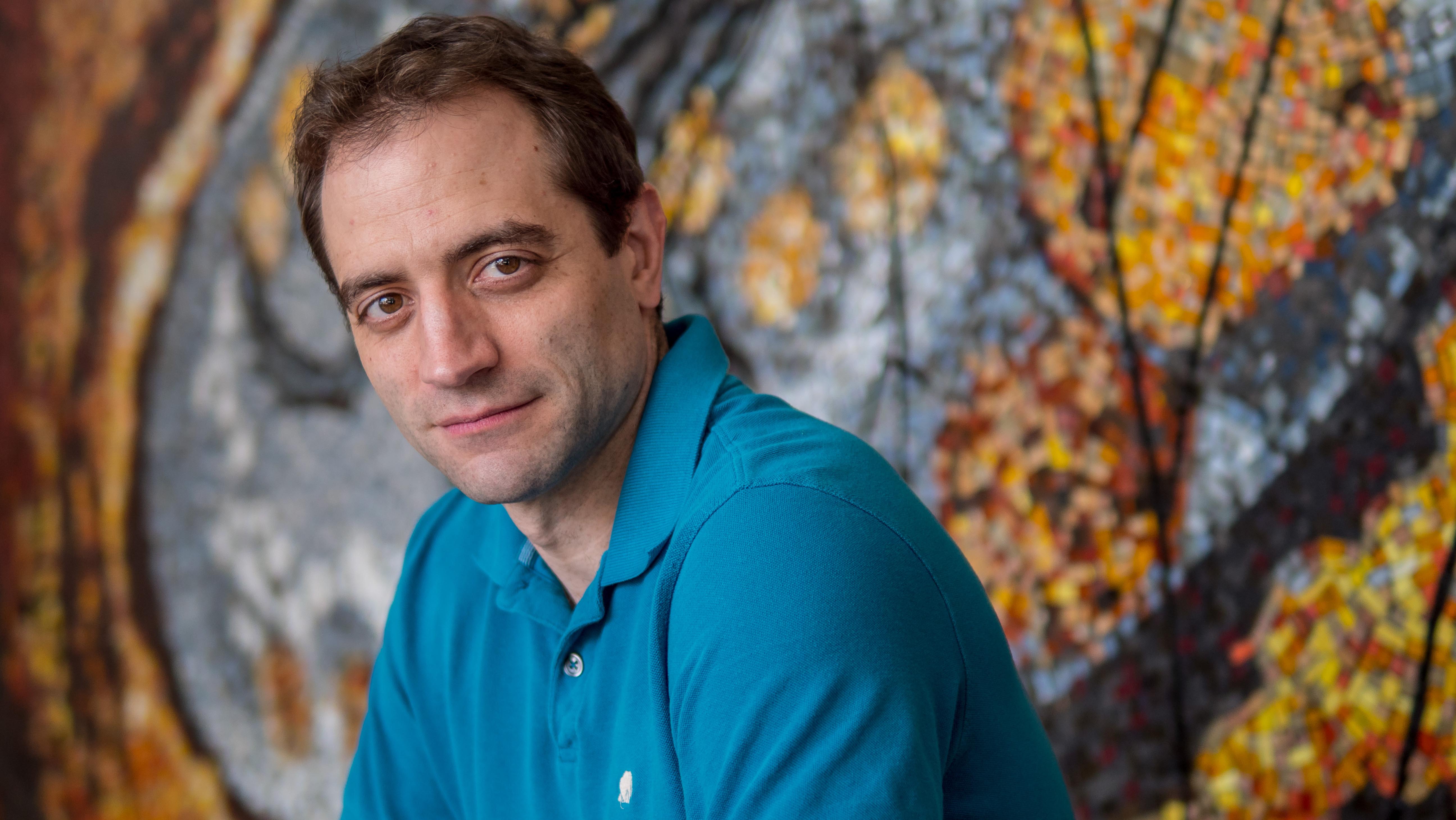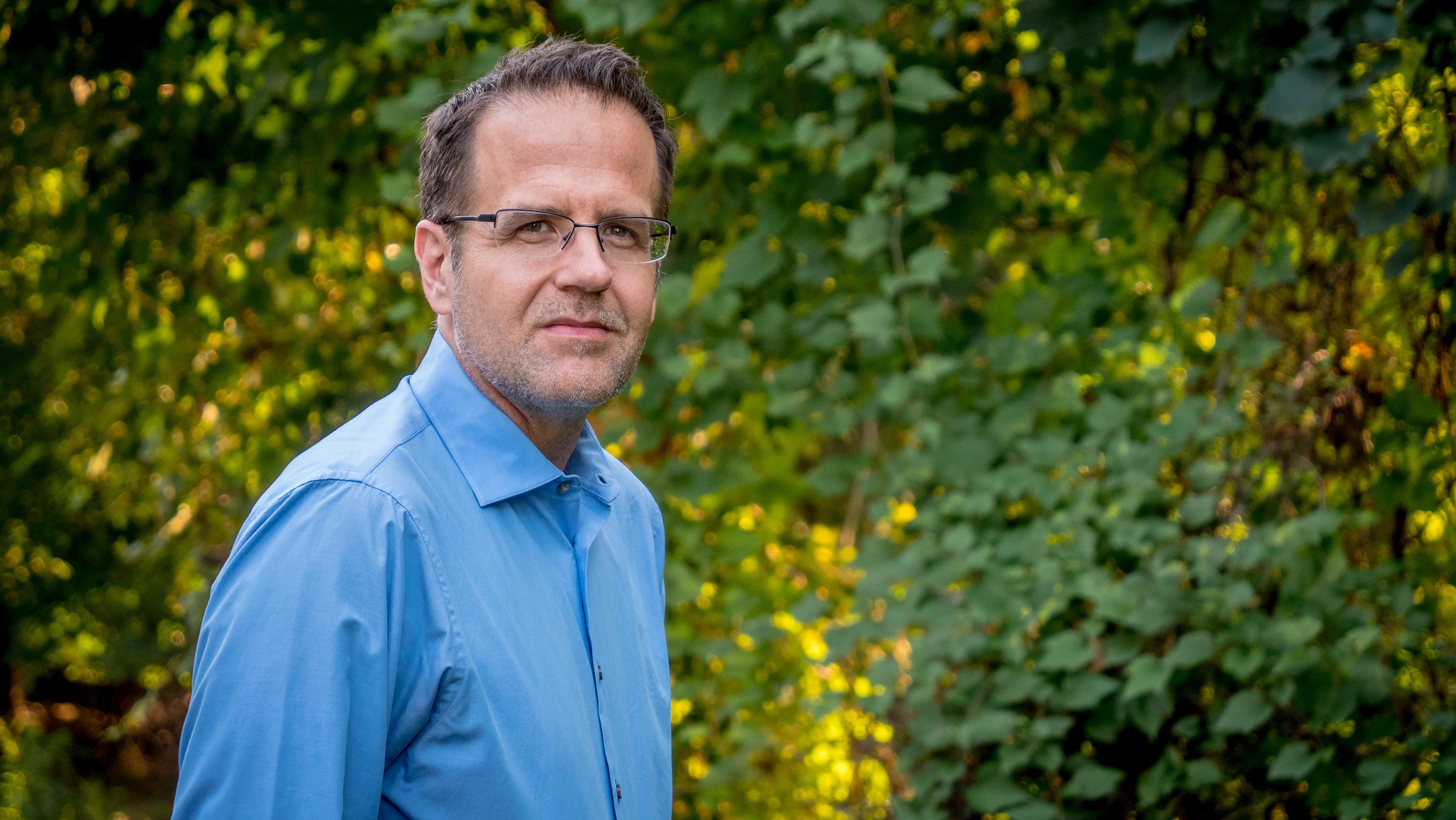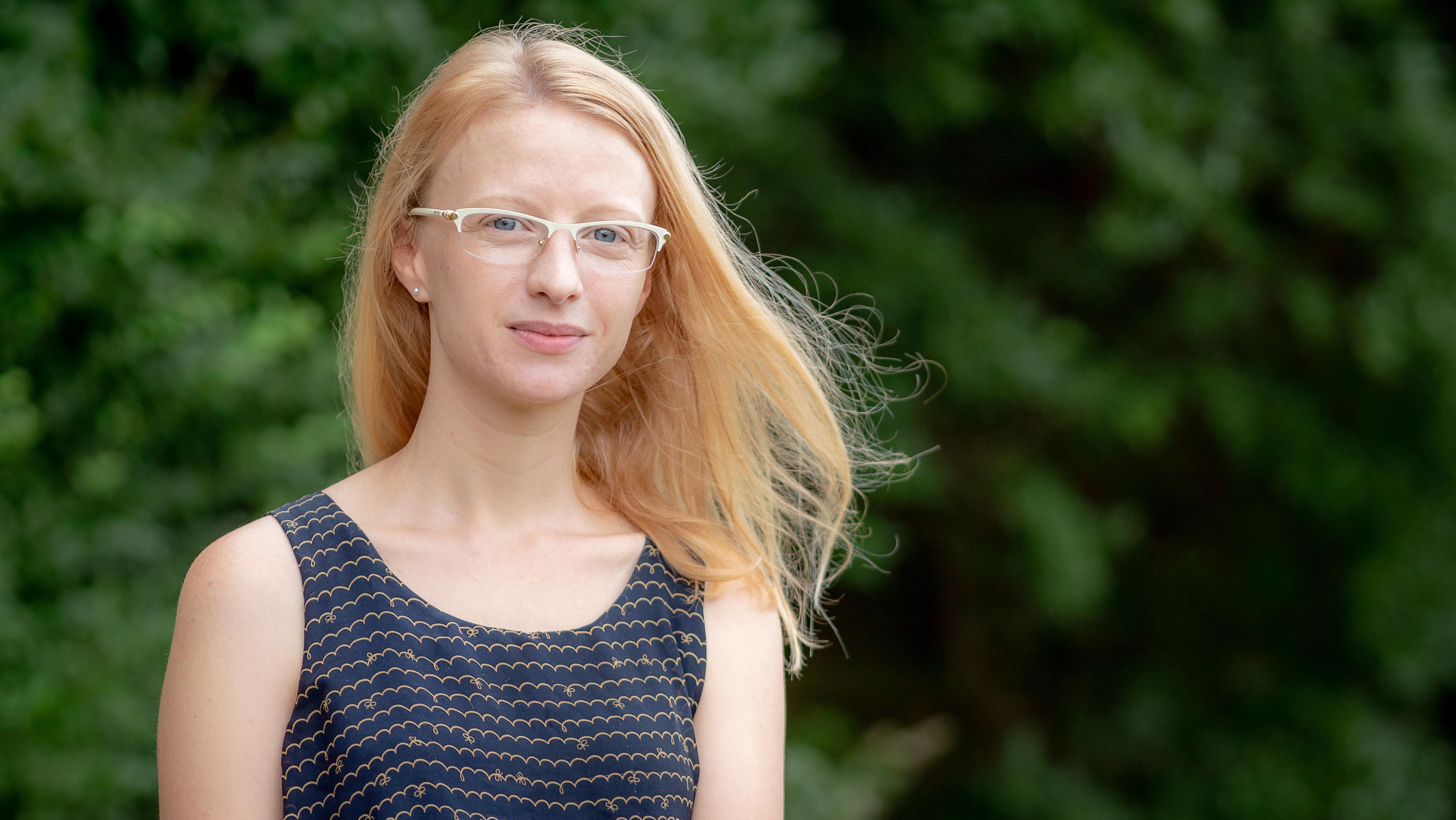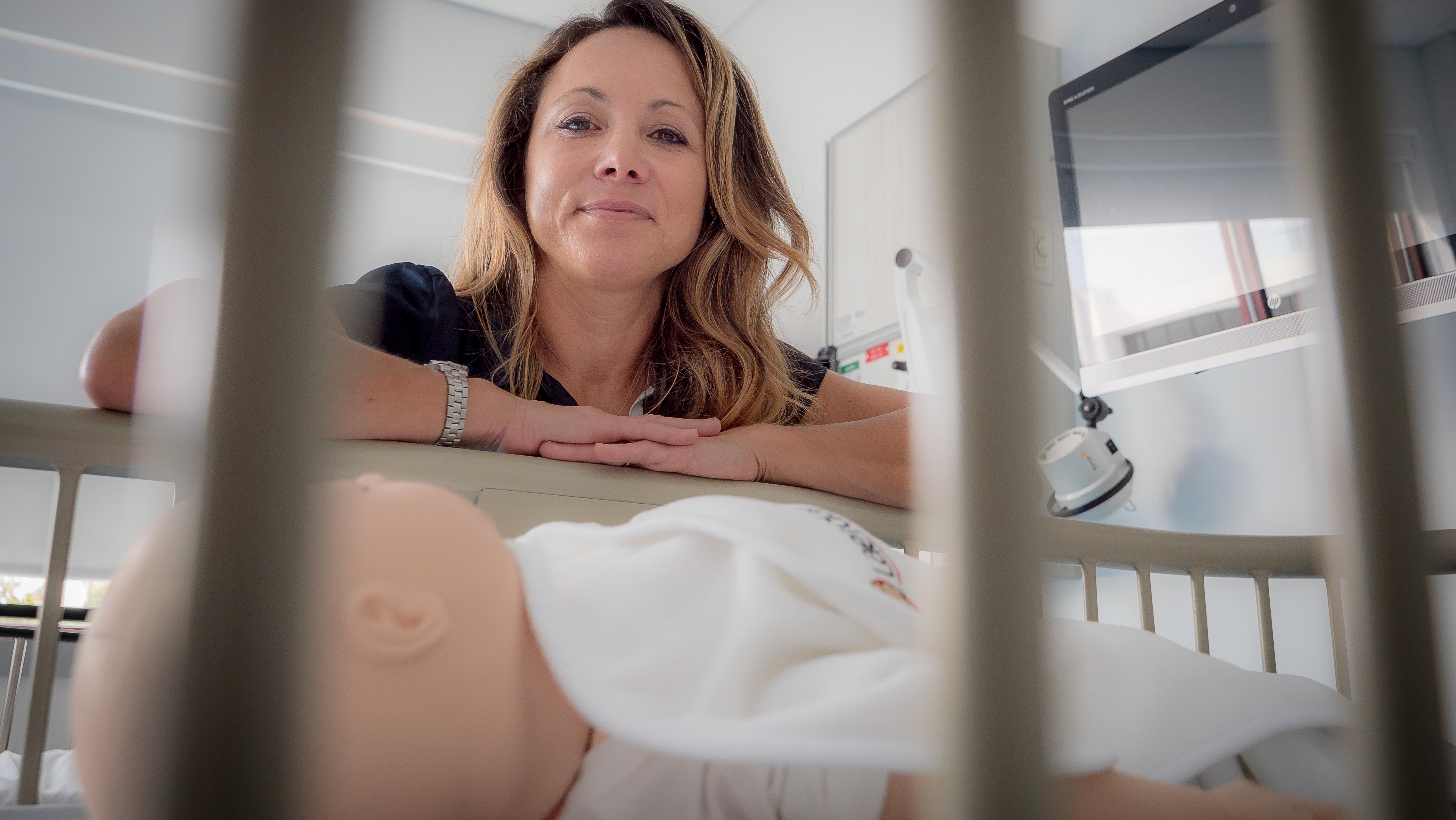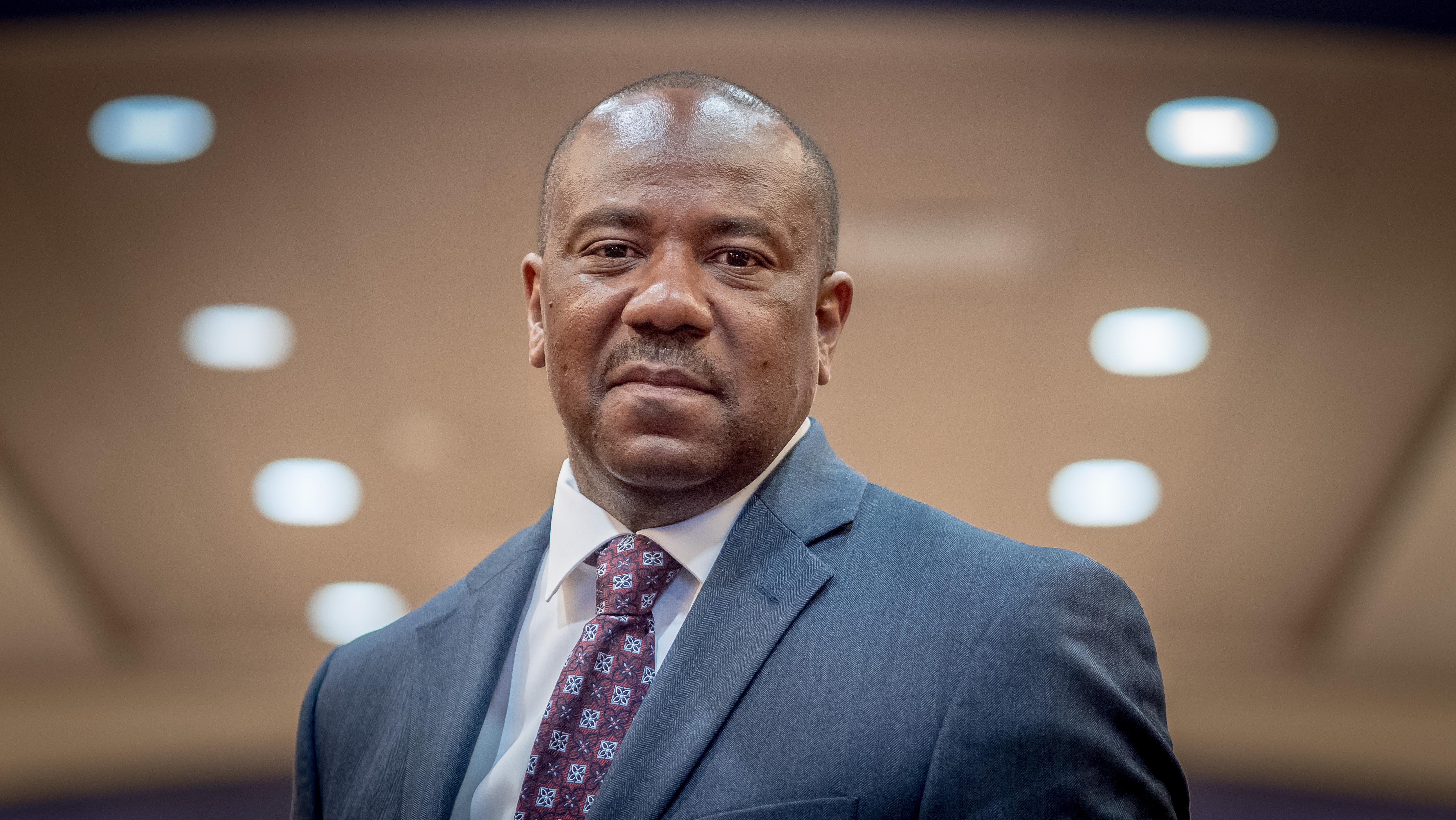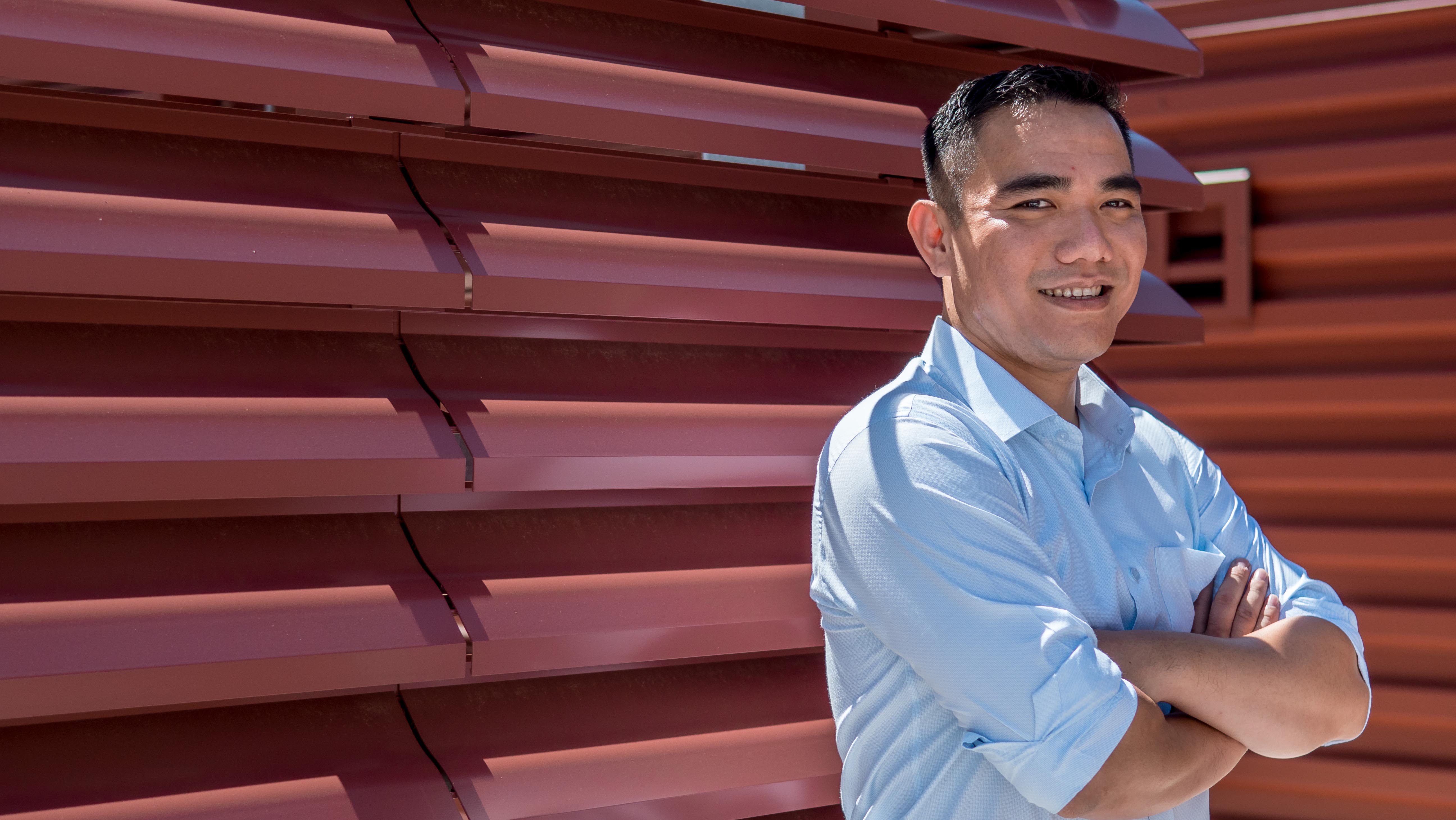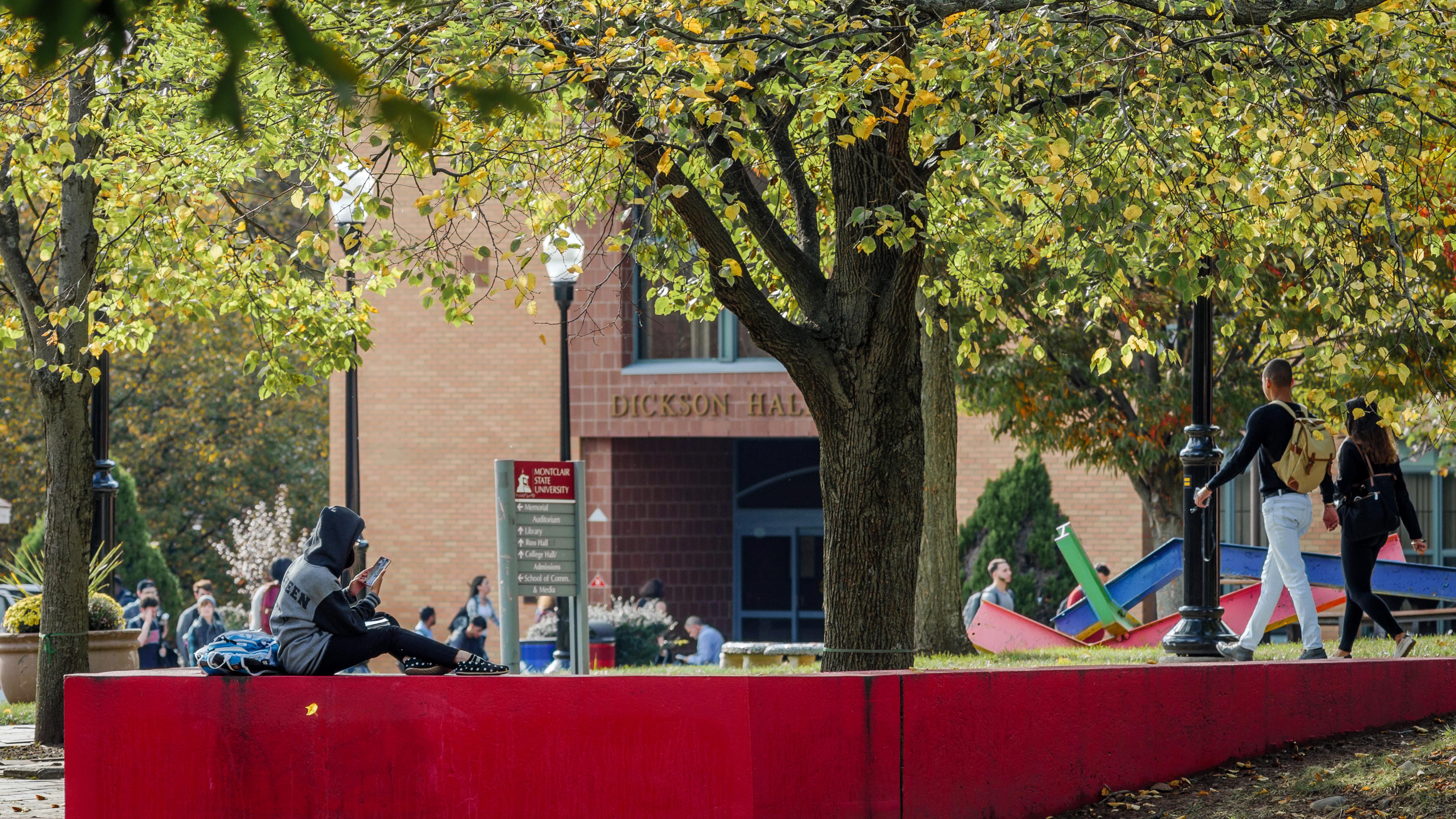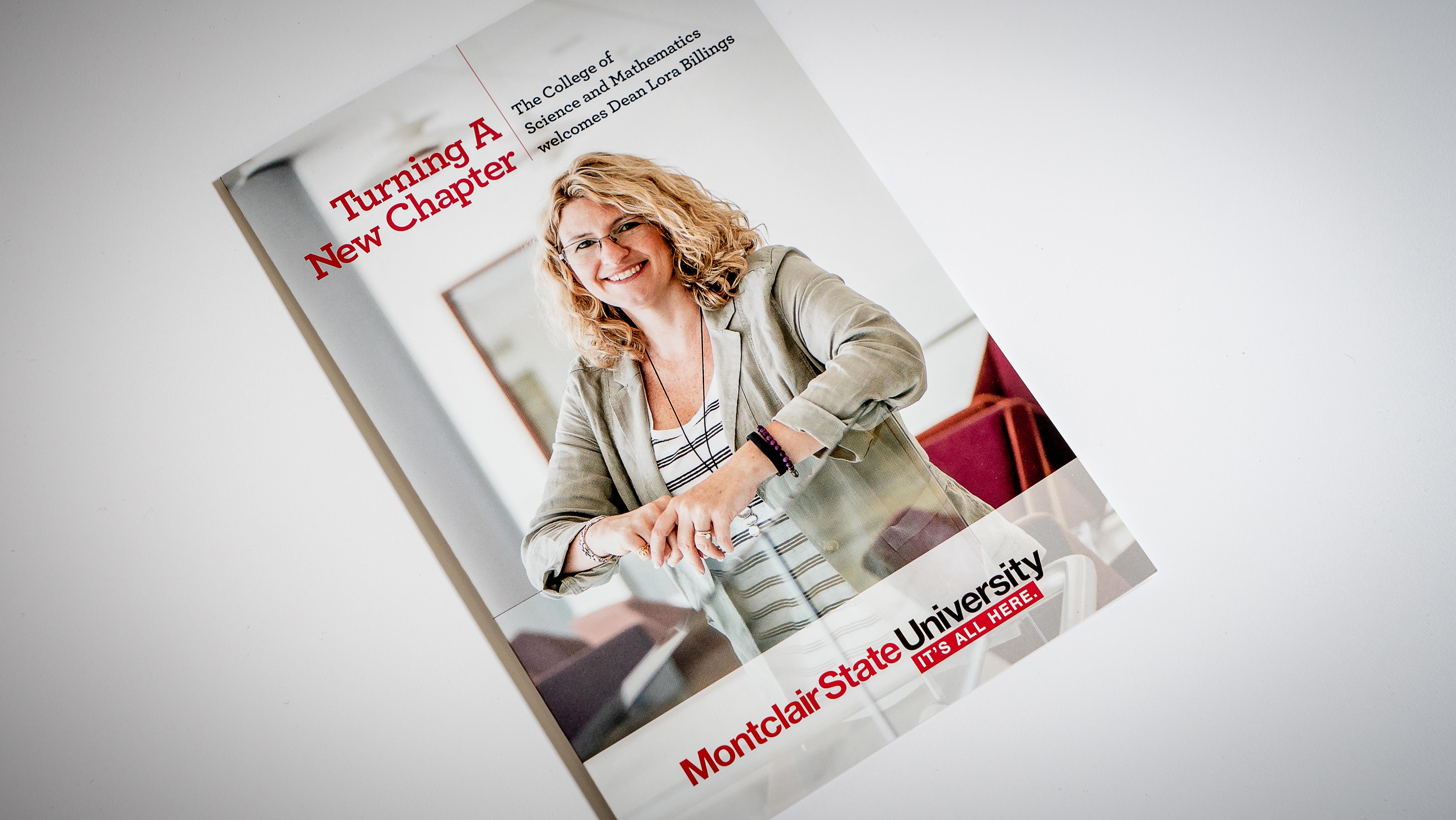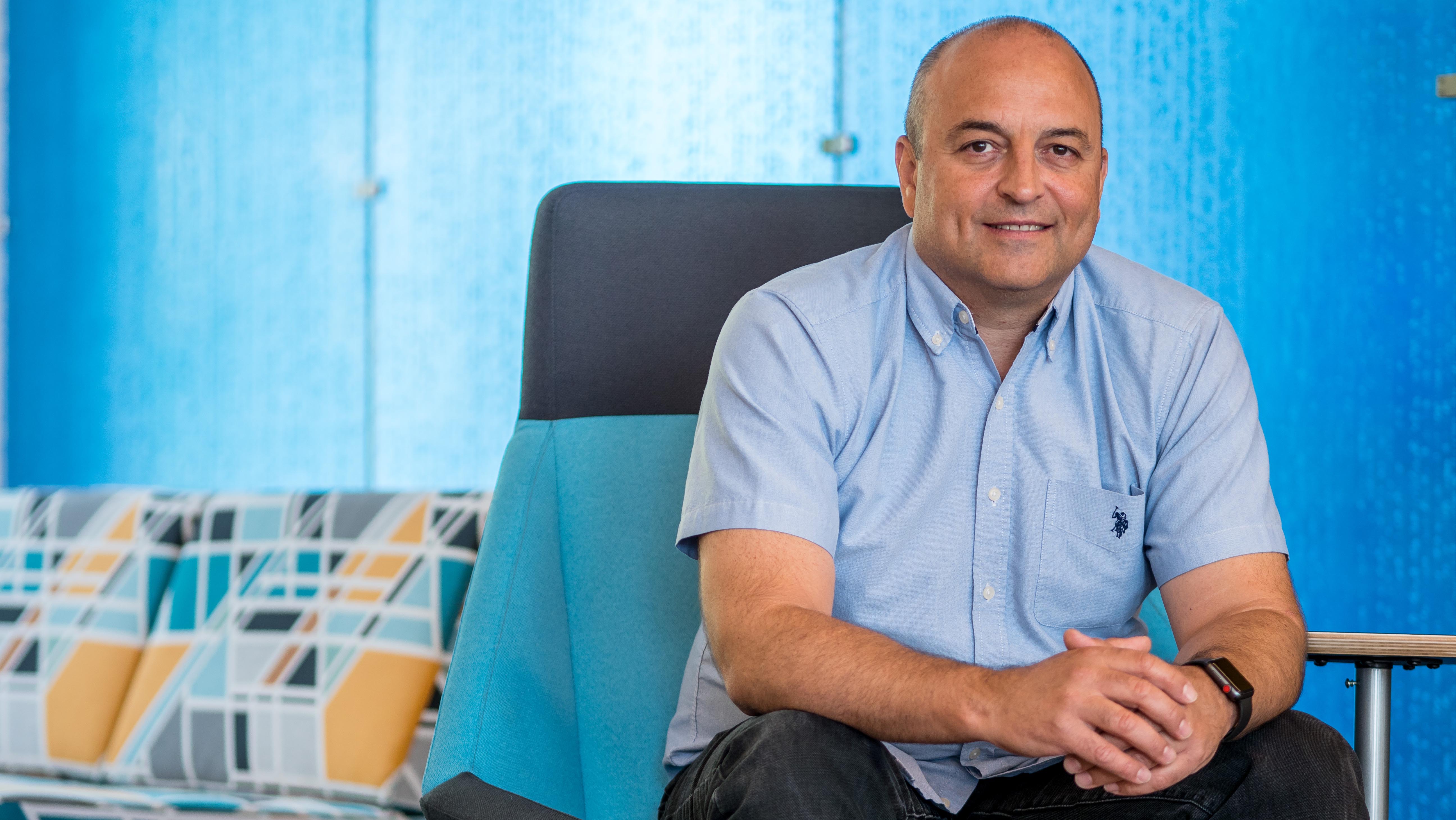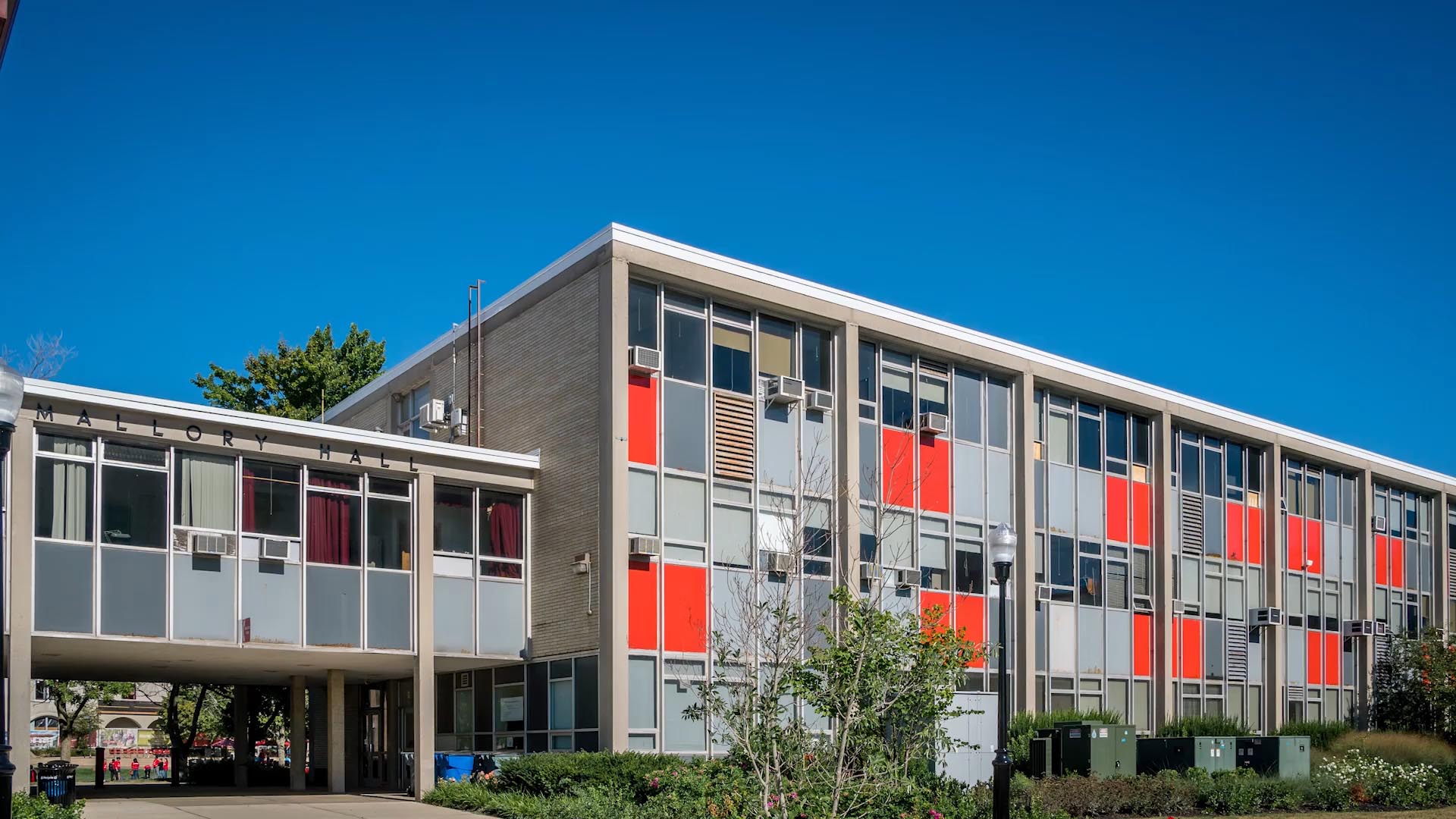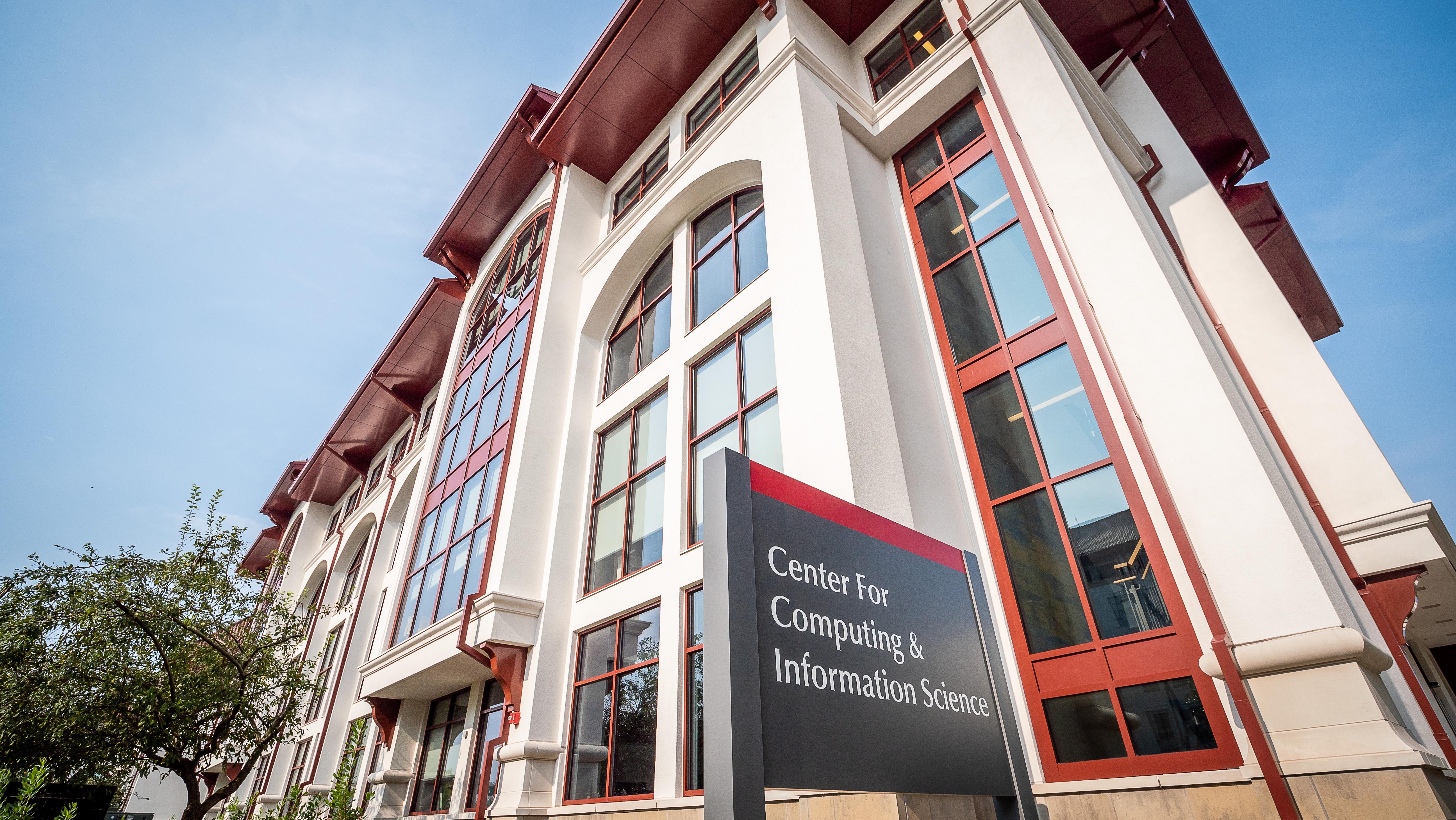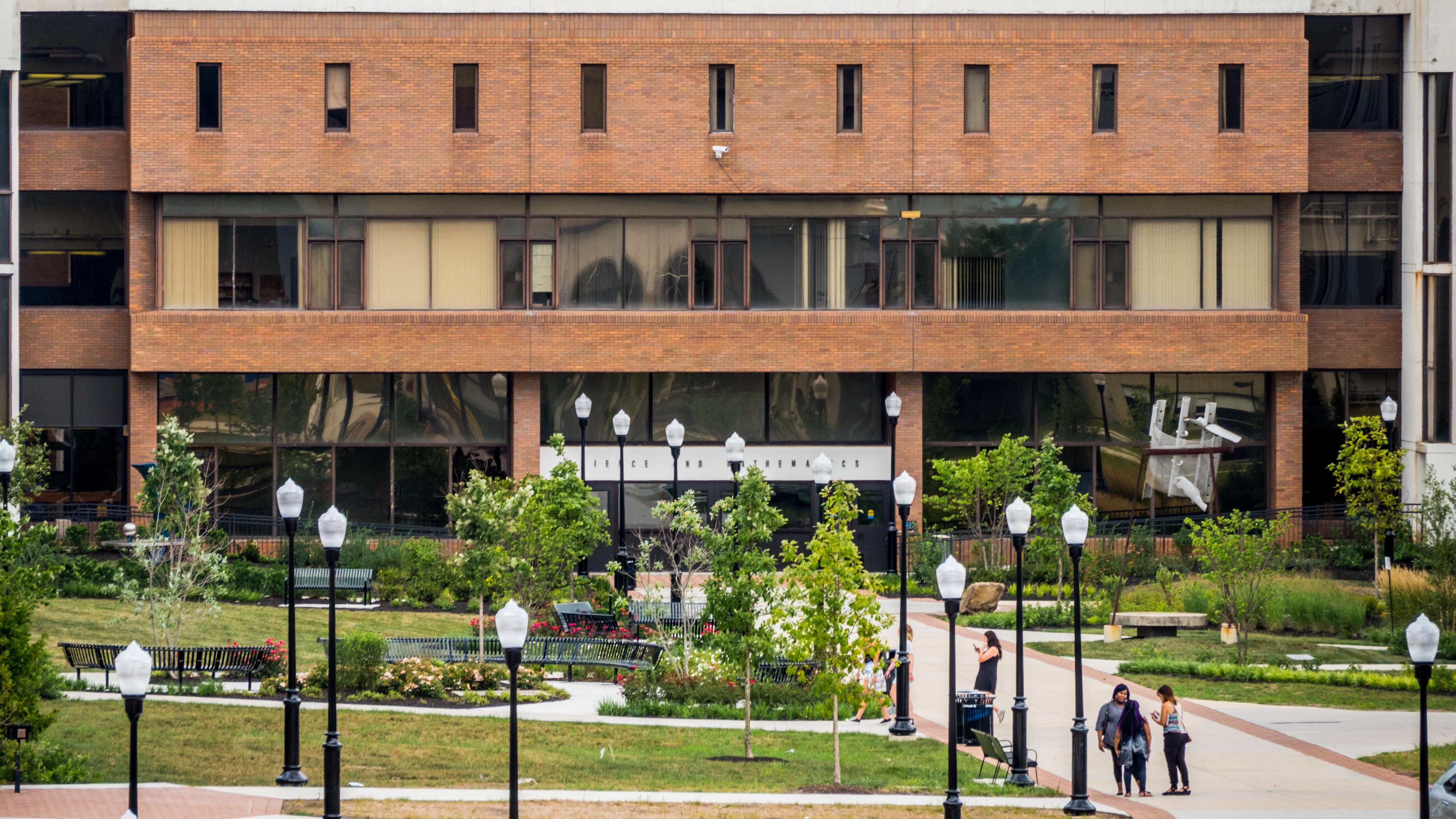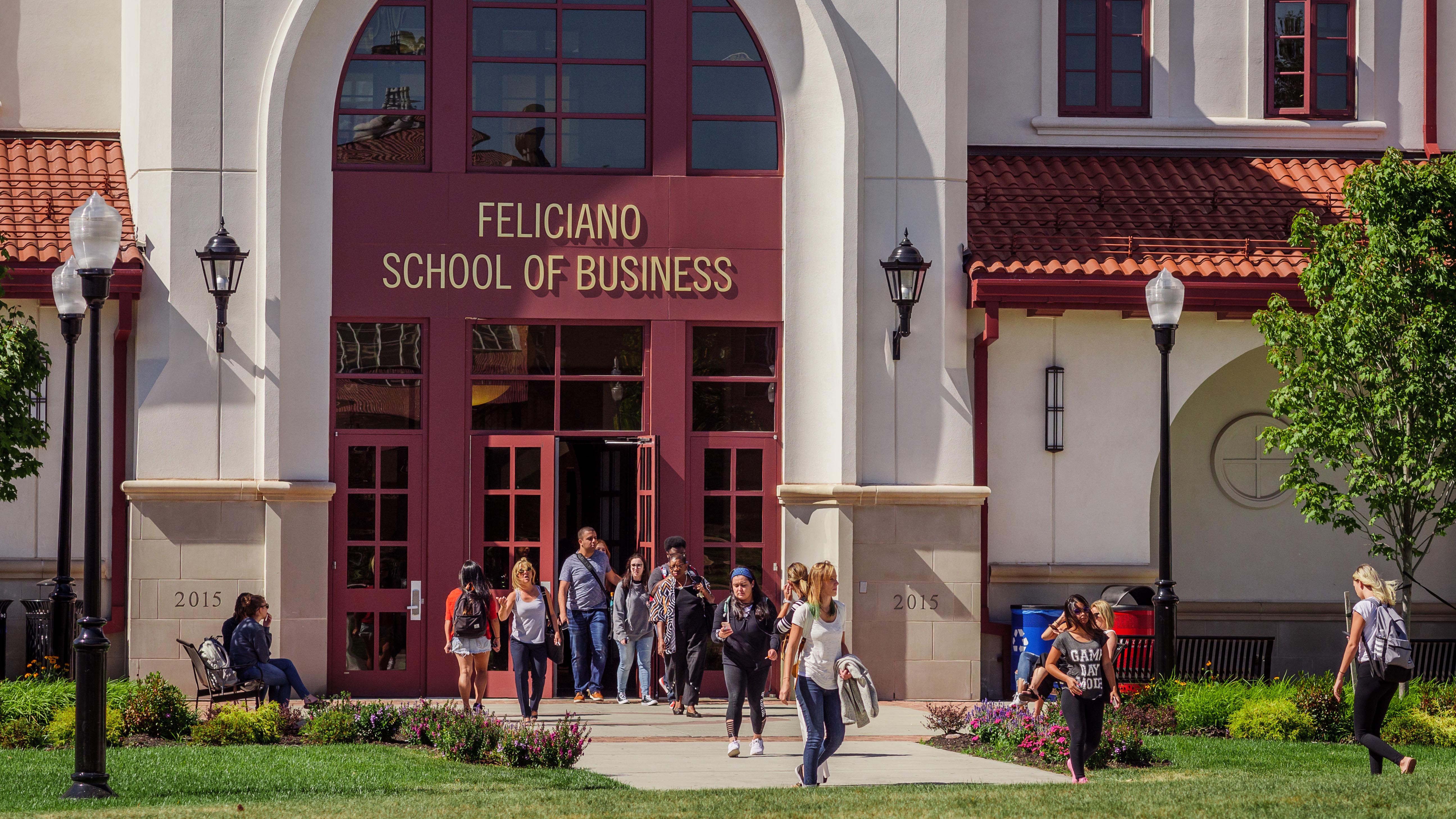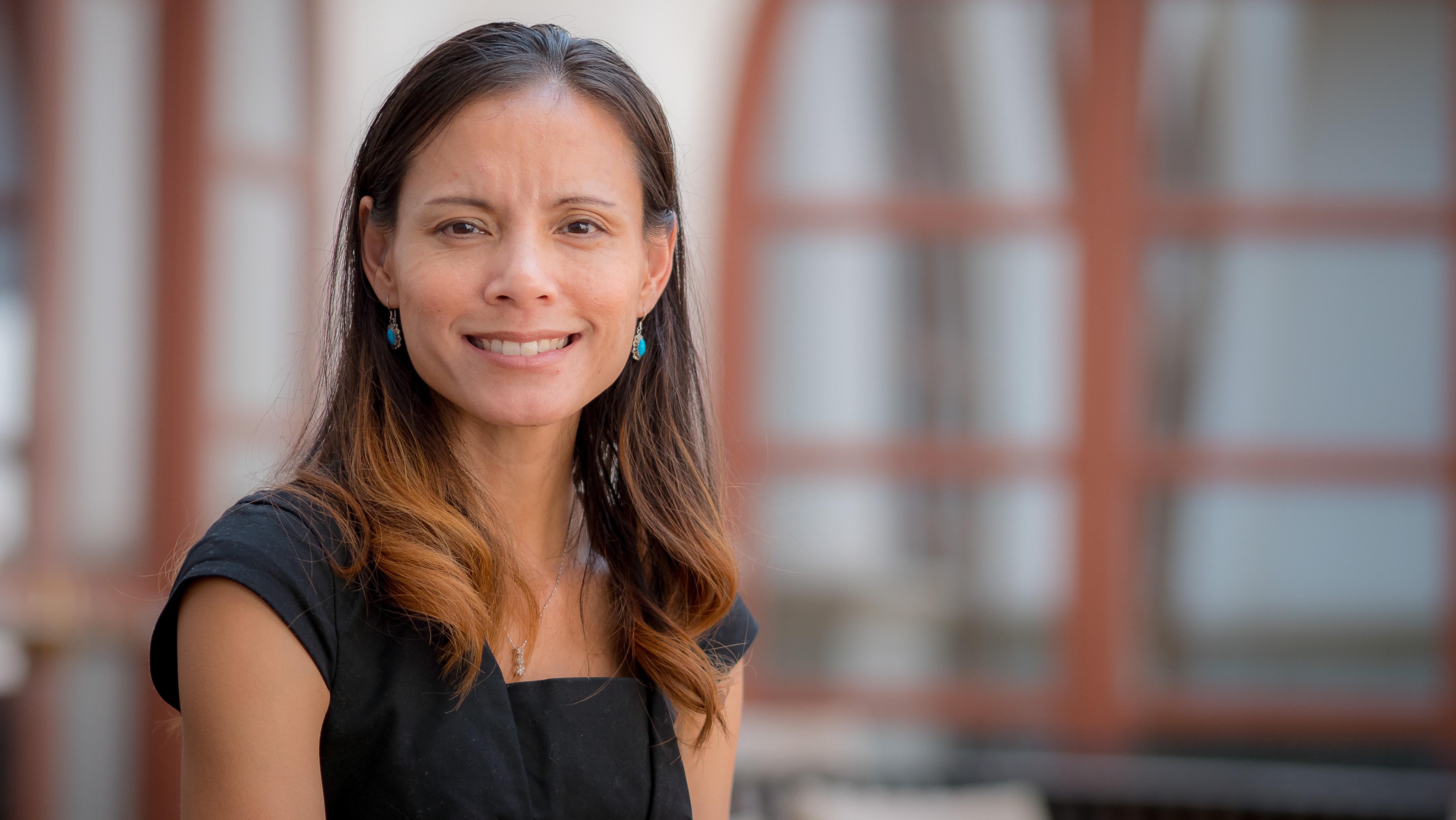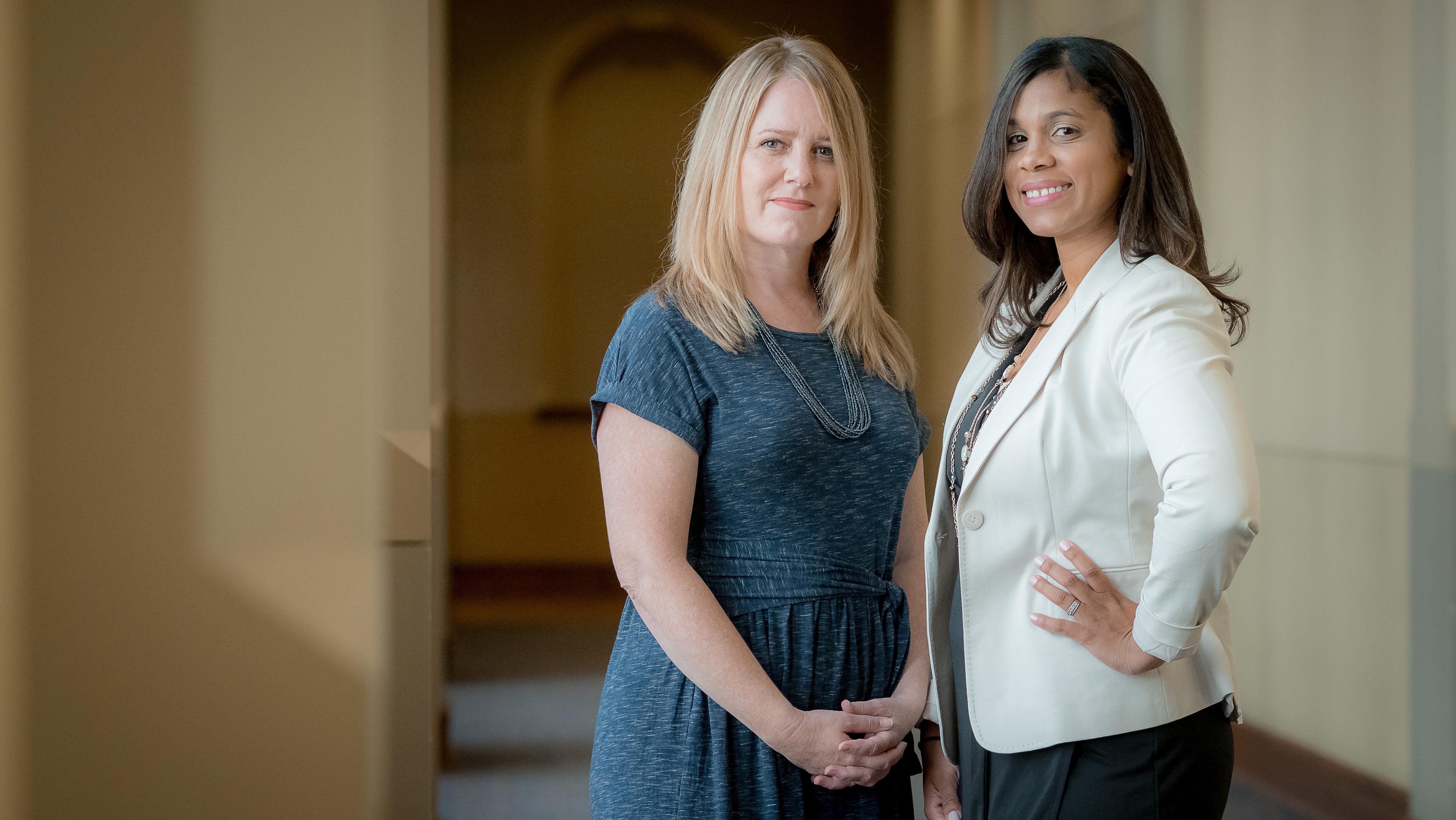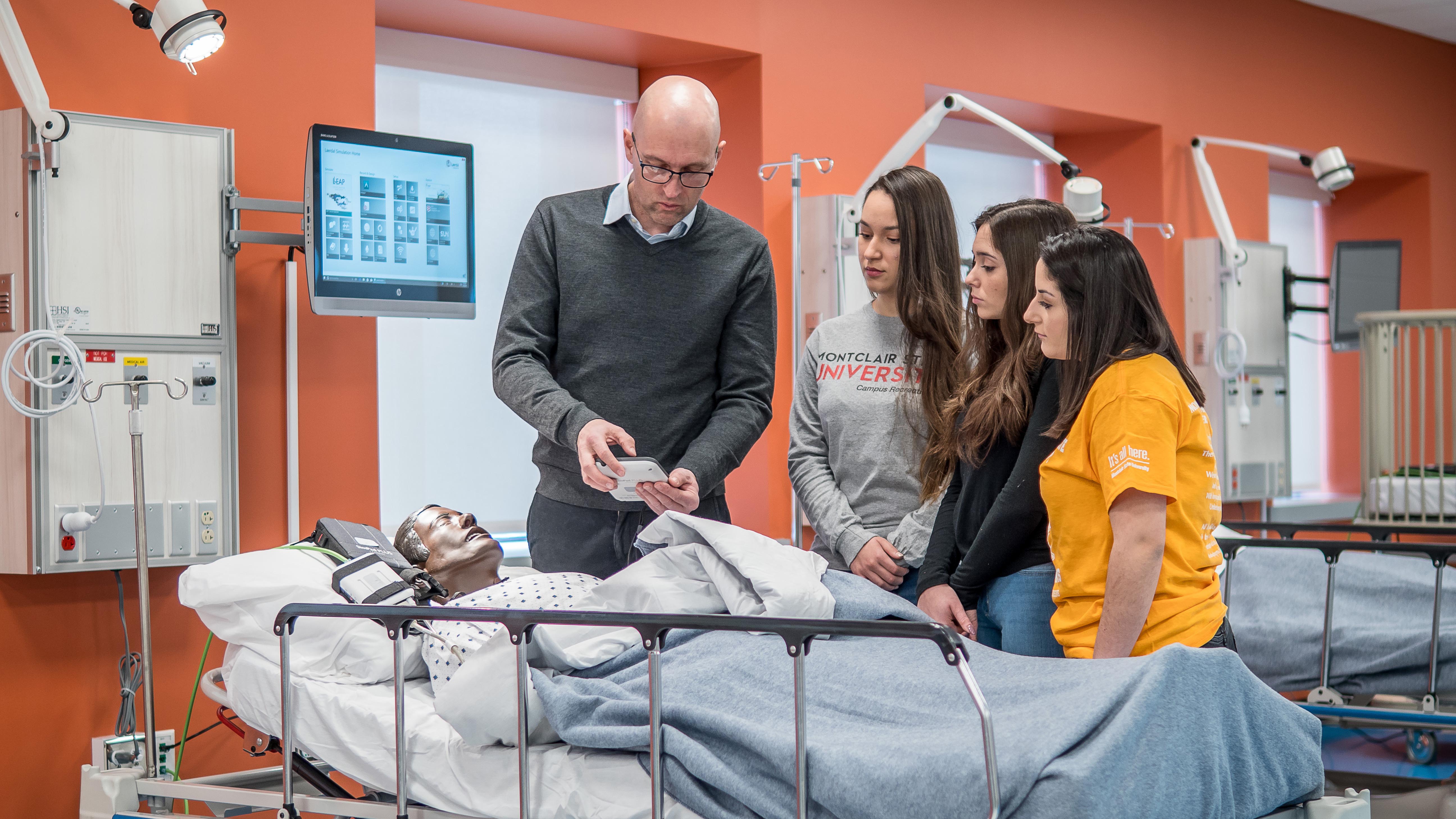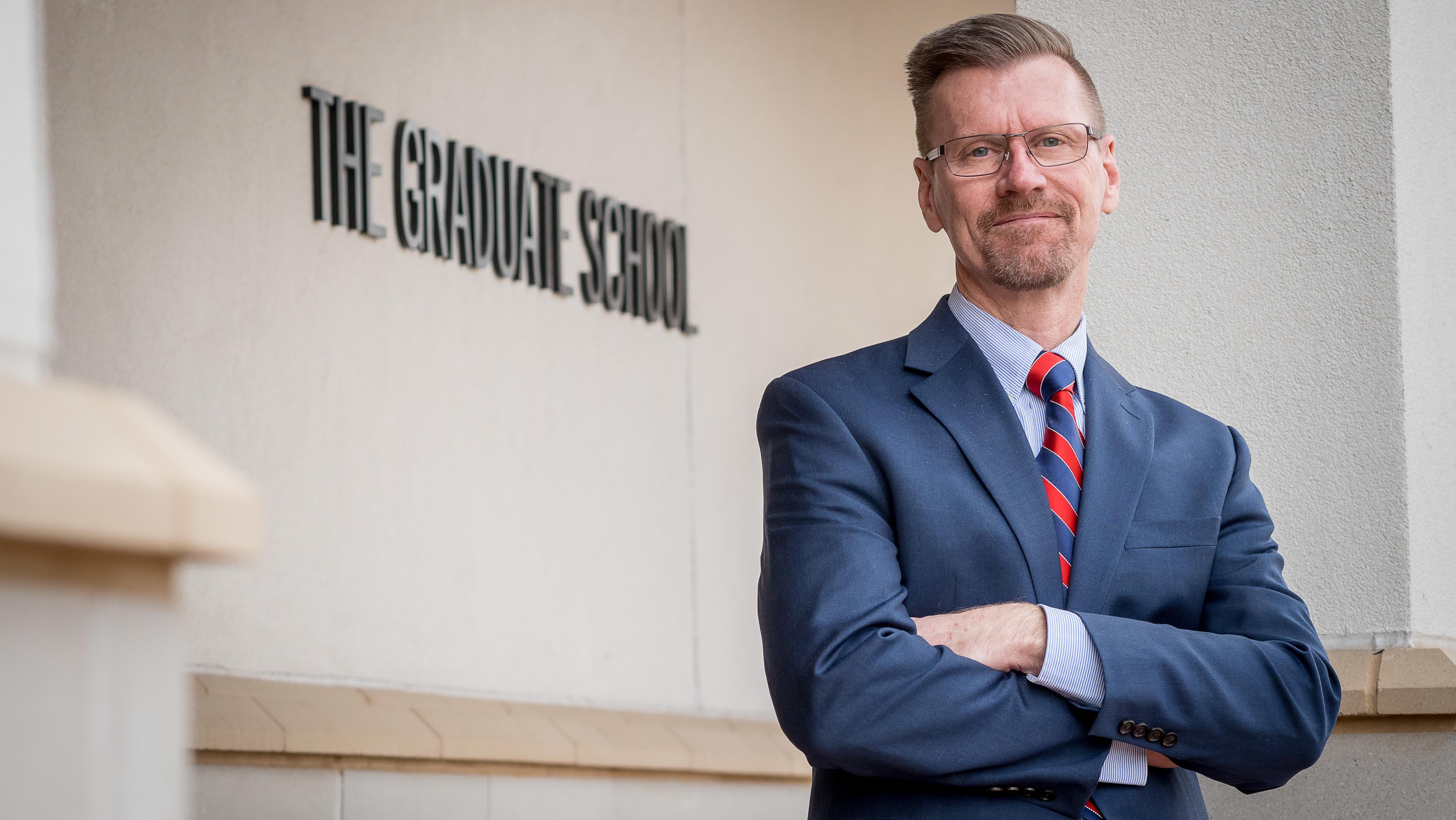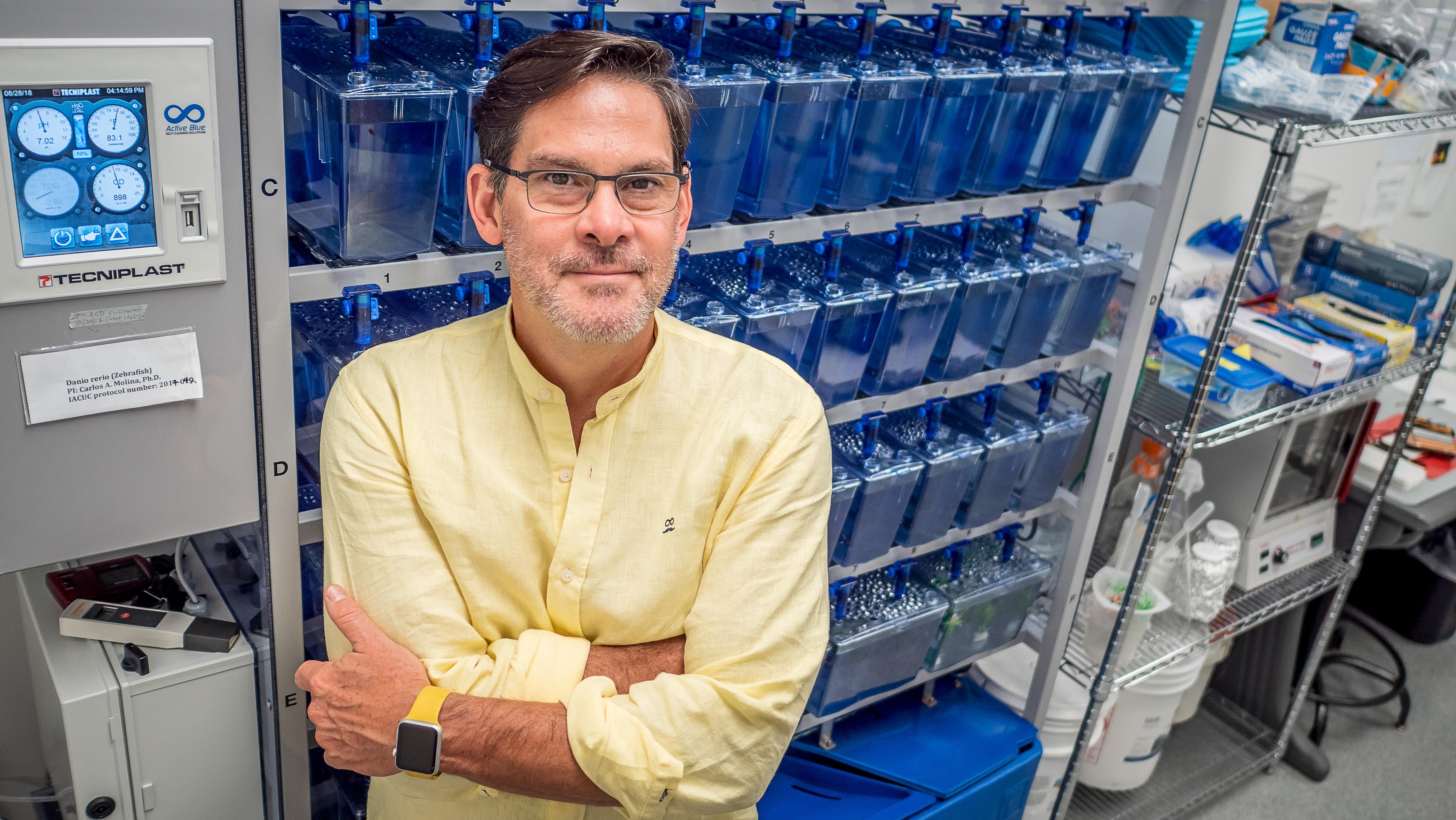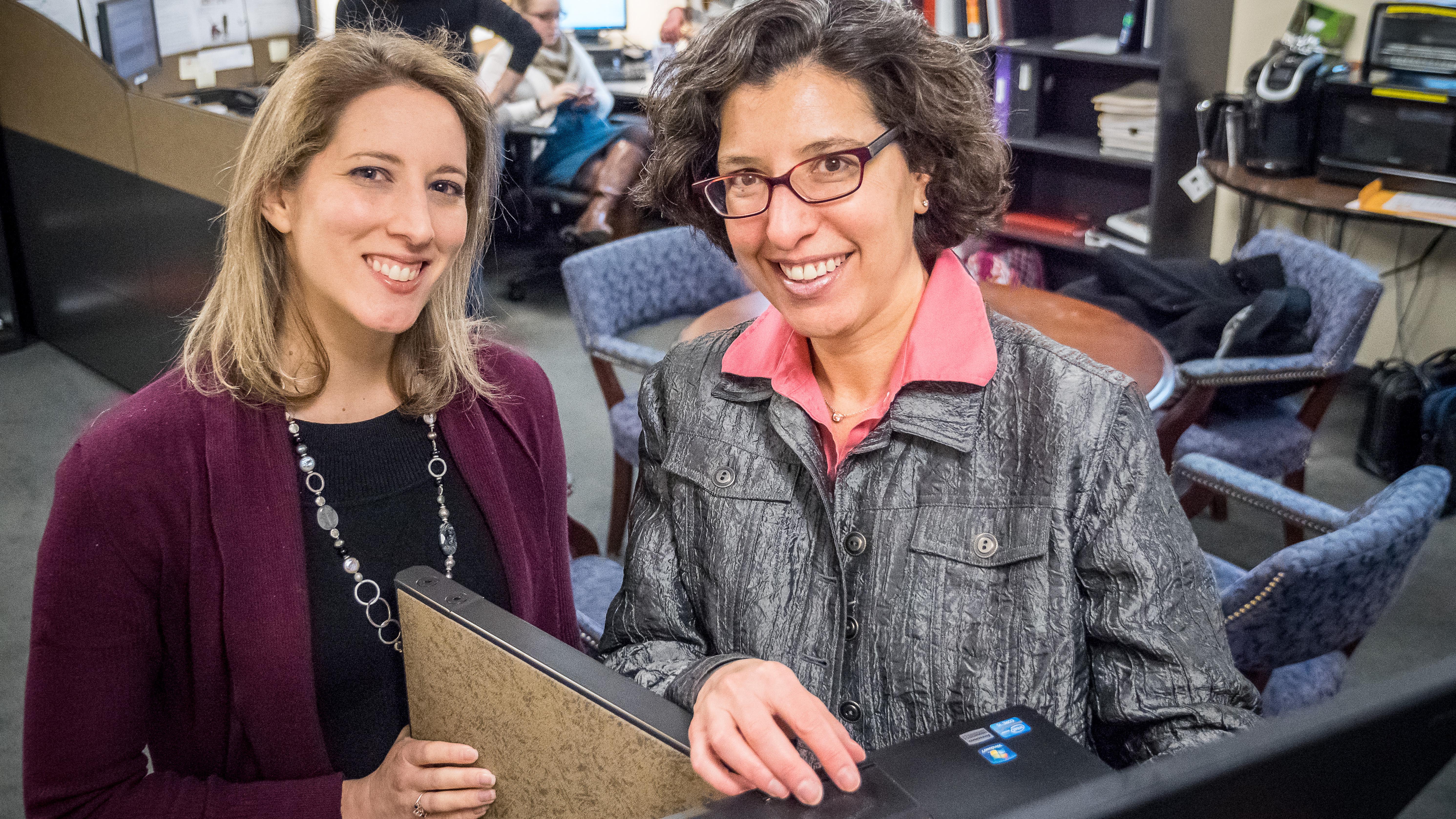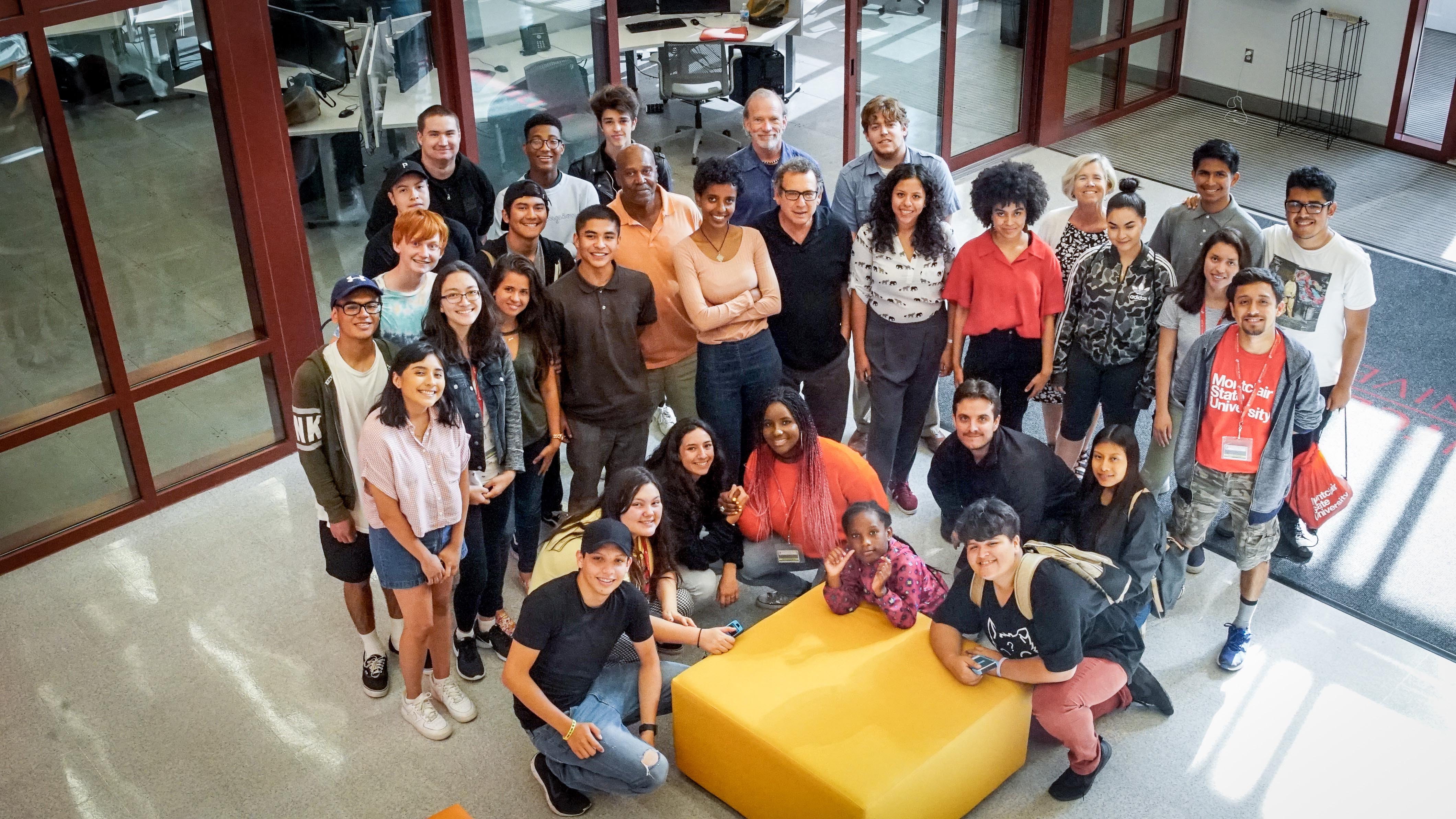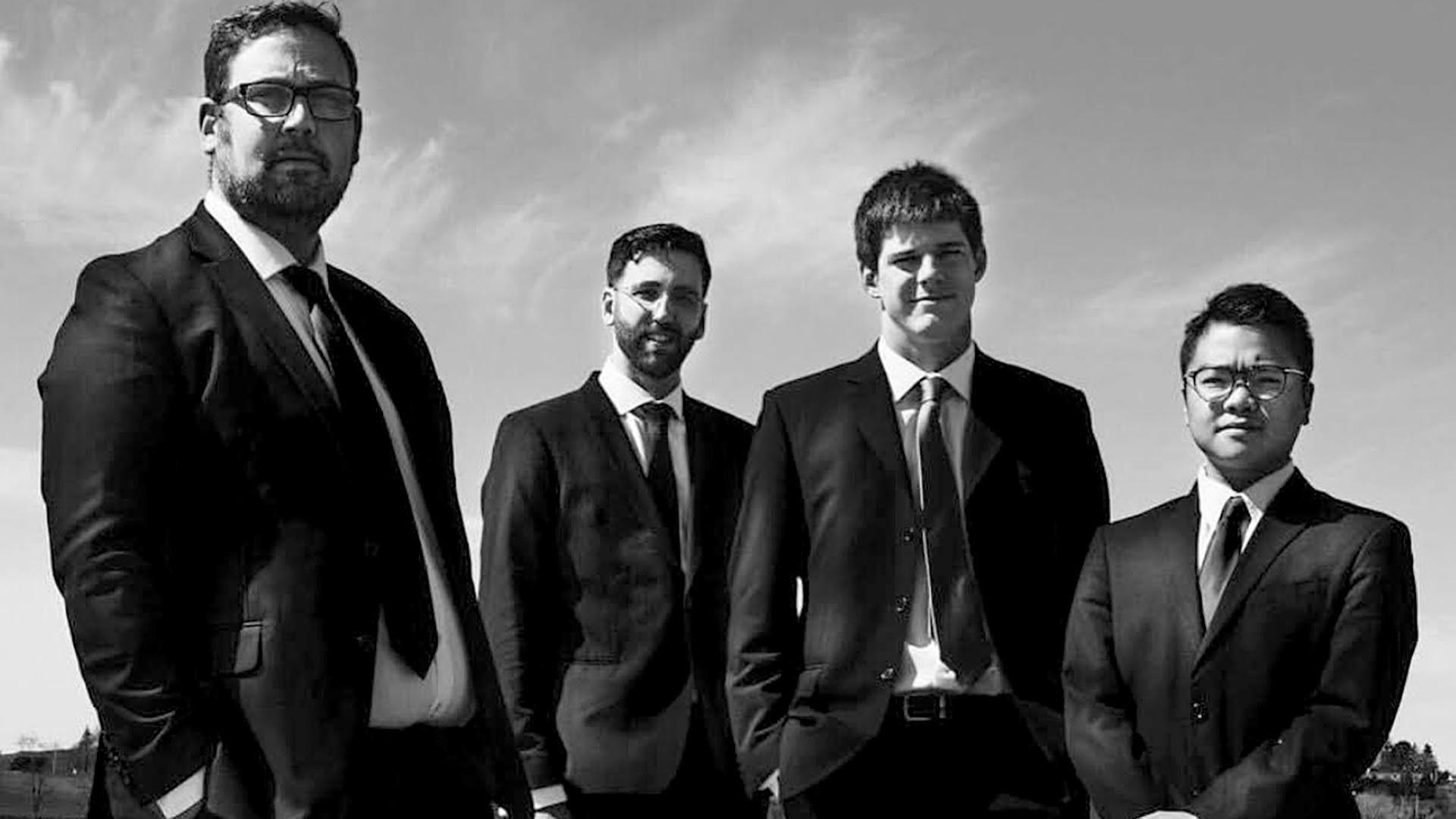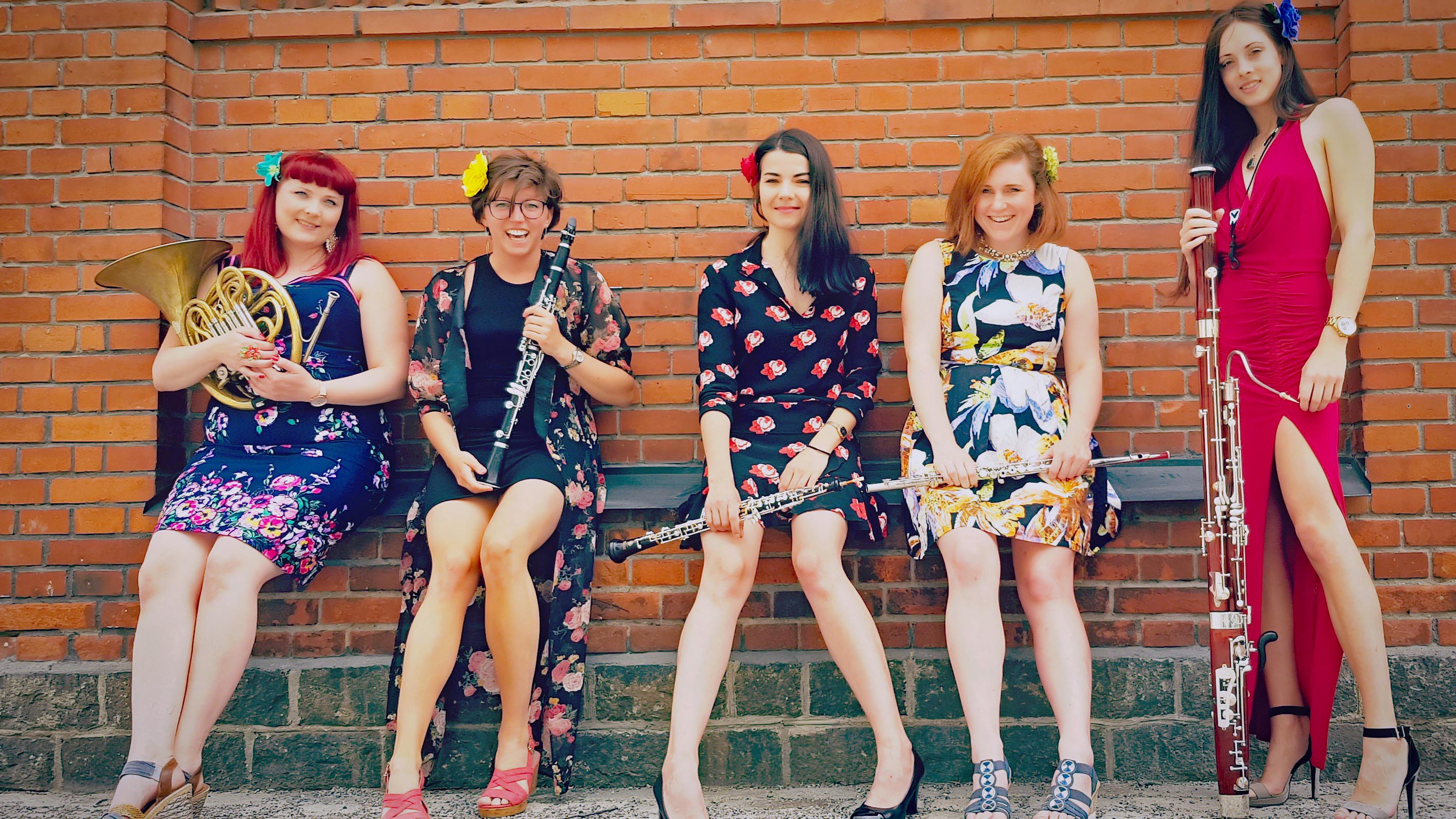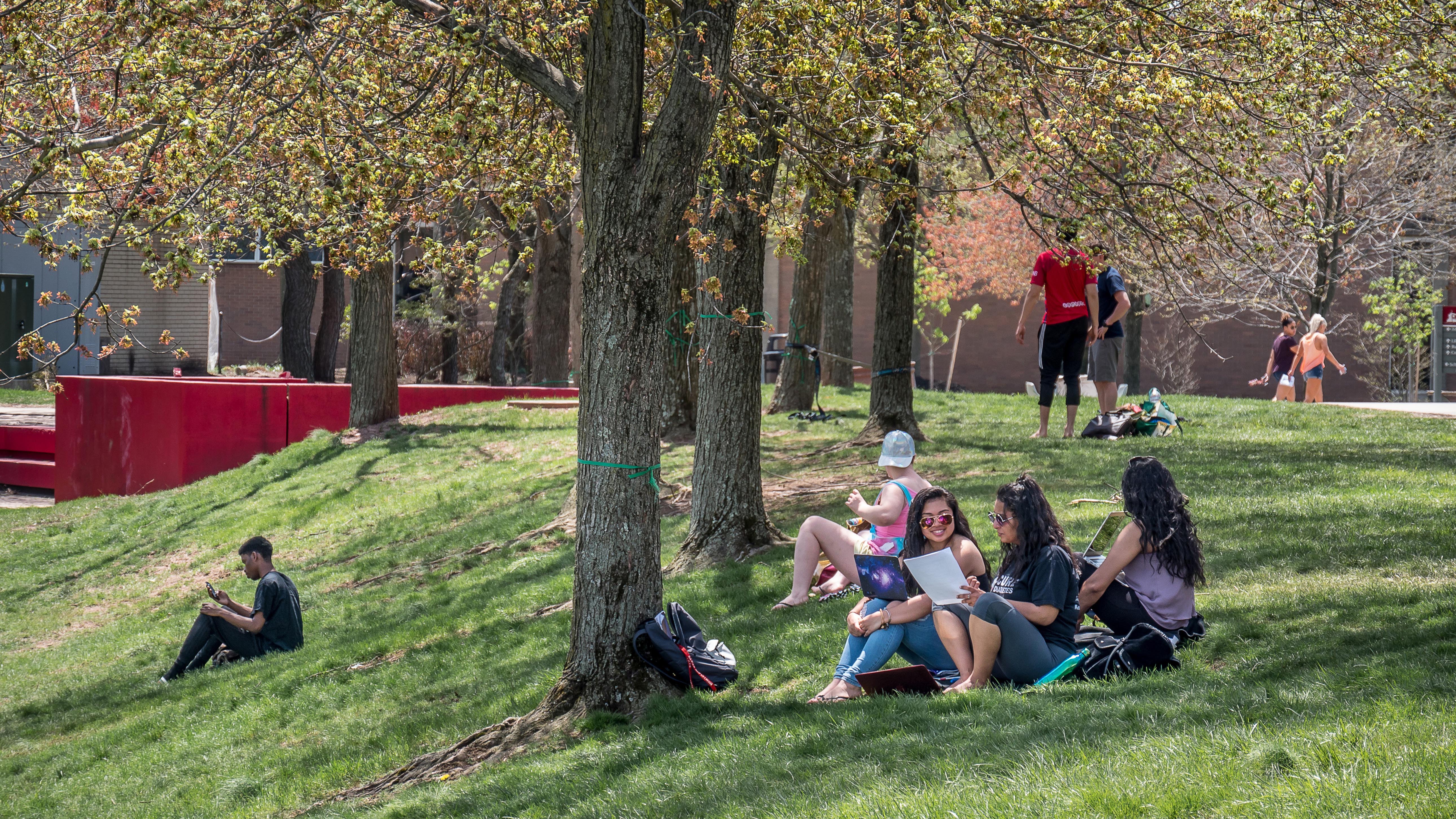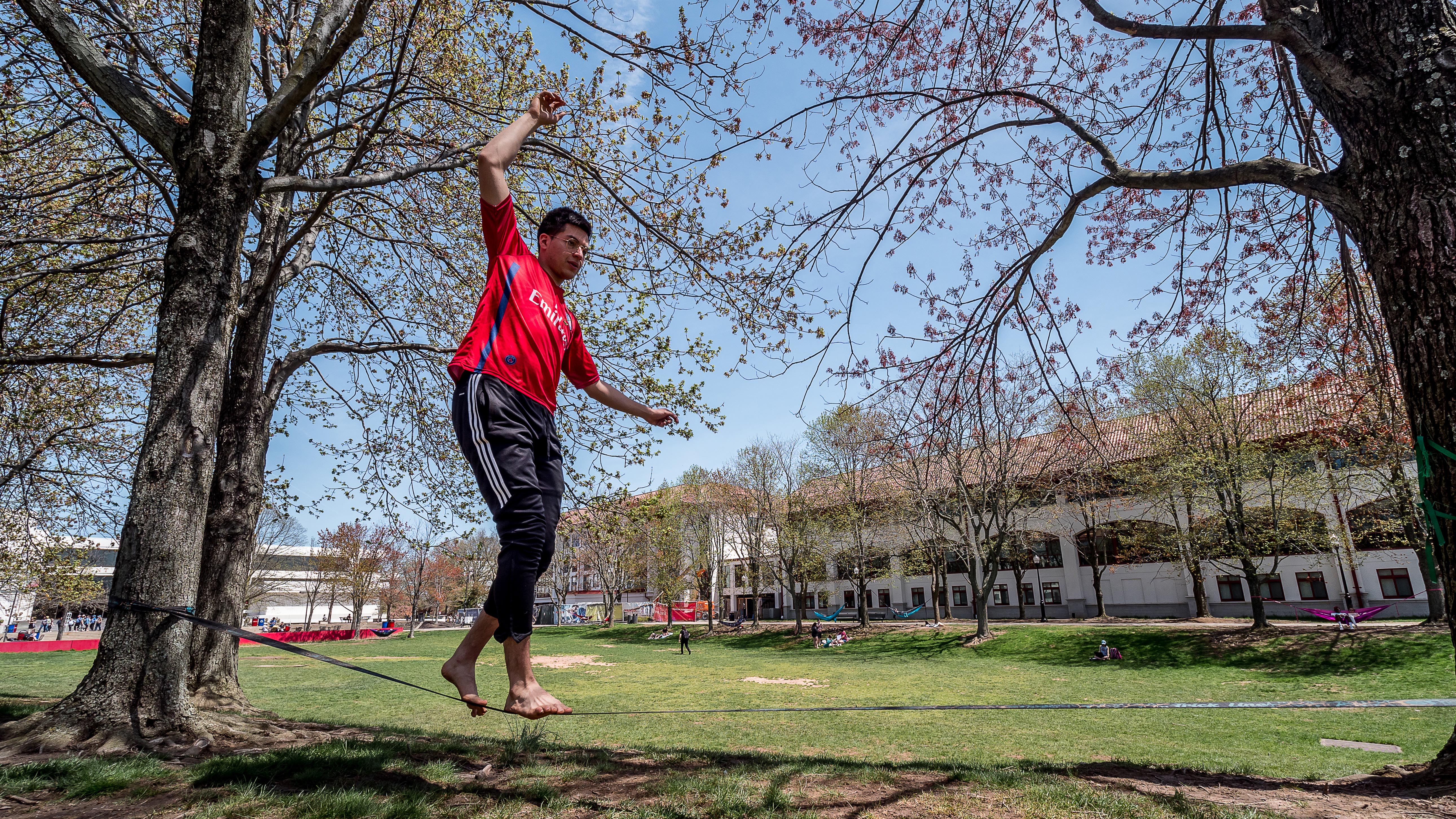President’s Opening Day Address
September 4, 2018
Posted in: University
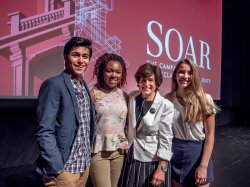
Welcome, everyone, to a new academic year. On this glorious day, as we begin this year with many new enterprises and changes in hand, I remind us of the well-known words of Abraham Lincoln, upon the signing of the Morrill Act in 1862, which changed the shape of American higher education by providing support for the state land-grant colleges. Lincoln said, “The dogmas of the quiet past are inadequate to the stormy present. The occasion is piled high with difficulty, and we must rise to the occasion. As our case is new, so must we think anew.” I would add to Lincoln’s thought that, because the storm front of the present is moving over the land with great speed, we must not only rise to the occasion, we must rise with great speed.
For us, at this moment, the focus of change must be on those initiatives that support student success. While 2018 may be the Year of the Dog on the Chinese calendar, at Montclair State University, it is the Year of the Red Hawk or, in other words, the Year of the Student. Of course, every year at Montclair State, since its founding in 1908, has been about the students, but this year is special. As we mark the University’s 110th anniversary, and, in light of the tremendous recent growth of the University in academic programs, facilities, research and so many other initiatives, and especially the growth in the size of the student population, this year, we are taking an intensive and very focused look at the University’s resources and infrastructure to support student success, that is, the ability of our students to maximize their participation in the educational opportunities offered by the University, to select and pursue the appropriate program of study, and to achieve timely degree completion, well-prepared to move on to careers or further study.
One of the most significant elements in this initiative is the creation of University College, the 10th among the University’s colleges and schools, which opened this September with 2,070 students, including 1,093 entering freshmen, 116 transfer students, and 861 continuing undergraduate students. The focus of University College, which made the journey from concept to execution in just under a year, will be to provide the academic advising and experiences that will enable its students to pursue a discovery process leading to the selection and preparation for a major program of study that is consistent with each student’s interests and abilities and that is likely to ensure a higher degree of certainty in the successful outcome of that selection. As part of that academic discovery and preparation process, University College will also provide activities that contribute to a welcoming environment and robust sense of community within the College, enabling students to make effective use of the University’s resources and to mature their understanding of the nature of university study. When the students are ready, but no later than the end of their sophomore year, University College will provide students with a seamless and timely transition to the college or school housing their chosen major, well-prepared for and well-informed about the requirements of that program.
I am delighted to welcome the University’s new Associate Provost for Undergraduate Education and Founding Dean of University College, Dr. David Shaen Hood. Dr. Hood received his EdD in Administration and Supervision in Higher Education from Tennessee State University, and he joins us from North Carolina Central University, where he served as Dean of their University College. A talented staff of professionals has been assembled for the new College, and they include:
- Danielle Insalaco-Egan, Associate Dean for Academic Planning and Enrollment, and her staff:
- Academic Program Coordinators Amanda Cosenza, Robert Serrani, Giancarlo Valcarcel
- Technology Manager Alker-Kelly Antoine
- Academic Advisor Kate Clawson
- Daphne Galkin, Assistant Dean for Academic Programming, and her staff of Academic Advisors:
- Matthew Calvert
- Jaffir Rice
- Temeshia Rufus
- Rob Schneider
- Yosayna Solano
- Andre Phillipe White
And, supporting Dr. Hood in his overall role as Associate Provost for Undergraduate Education, are:
- Nicole Weir, Associate Director for Undergraduate Advising, Enrollment and Curriculum
- Amanda Carcione, Assistant Director for Undergraduate Academic Initiatives
- Jessica Montesdeoca, Administrative Coordinator
We have assembled, successfully and speedily, a very talented and committed team of professionals, and I know you will join me in wishing them well in their exciting new venture. I cannot tell you how grateful I am to the terrific group of colleagues who I announced to you last April and who worked tirelessly and brilliantly in the search for the new dean and other University College professionals and who accepted my invitation to serve as an ongoing campus-wide Advisory Team to champion and support the work of the new dean and his staff in the early years of University College’s development.
The temporary home for University College until the renovation of College Hall is completed is on the main floor of Sprague Library. Please, stop by and have a look. Thank you to the University Facilities team for making the magic happen in a few short months, and thank you to our stalwart Dean of Library Services Judith Linn Hunt, for generously sharing her real estate with the new College. I am absolutely one hundred percent certain that the creation of University College is going to represent a profoundly important addition to the University’s ability to provide a rich undergraduate experience for all of its students, enabling them from the first to the last day of their undergraduate experience, to have full membership in a college or school.
As the University and its student population have grown significantly, in conjunction with the new University College, we have recognized the need to enhance the academic advising structures of the individual colleges and schools that offer undergraduate majors. As a consequence, this past spring, each of those colleges and schools developed a plan for creating a new, or building on an existing, college- or school-specific advising structure.
Briefly to summarize these:
- The College of Humanities and Social Sciences, our largest college, has created an advising structure led by Assistant Dean for Student Services Courtney Cunningham and including Associate Director of Student Affairs Jessica Brandt, Director of Career Development Nadine Verna, Career Advisor Jeffrey Poulos, and they are in the process of recruiting three new Academic Advisors. In addition, each of the departments of the College has identified specific faculty and professional staff who serve as key advisors or advising coordinators.
- The College of Science and Mathematics is developing a new Student Success Center to provide integrated academic and career advising to its undergraduate students. The Center will be under the supervision of Associate Dean Scott Kight and will be staffed by a Director of Academic Advising, currently being recruited, Director of Career Services Gennae Hinson, Academic Advisor for At-Risk Students Shari Ferguson-Murtha, two new Academic Advisors currently being recruited, one specializing in Pre-Health and Career advisement and one specializing in New Student Recruitment, and Graduate Intern Koralee Grullon. In addition, each of the departments of the College has identified faculty and professional staff who serve as key advisors or advising coordinators.
- About two years ago, the College of Education and Human Services established a Student Success Center, which is led by the Director of Academic Advising Rebecca Madson and includes a strong group of both cross-trained and department-specific staff and is currently recruiting a new Academic Advisor. The Center coordinates its efforts with identified professional staff in the various departments.
- The Feliciano School of Business established the Ellyn McColgan Center for Student Services in 2015 with a generous gift from a University alumna, and it is the most established advising center among the various colleges and schools. The Center reports to Vice Dean Kimberly Hollister, and its staff includes Director of Academic Advising Eric Moskovitz, Director of Career Services Diane Freedman, Academic Advisors Marryum Hafeez and Juleen Wang, Assistant Director of Career Services Mariah Mayers, Career Services Advisor Eileen Fee, and one new Academic Advisor is currently being recruited.
- In the new School of Nursing, all members of the faculty and staff, including the dean, work as a team to provide intensive academic advising to all Nursing students.
- And for its highly specialized academic programs, the College of the Arts will provide advising through a decentralized structure, with each of its four academic units assigned its own principal advisor. At the John J. Cali School of Music, Gina Balestracci, the School Administrator, will continue to oversee advising for Music students, and, in the Department of Theatre and Dance, Professor Eric Diamond will continue his experienced work as an advisor to the Theatre and Dance students. Searches are nearly complete for new professional advisors for the Department of Art and Design and the School of Communication and Media. The entire advising team will be supported by the College Student Services area, under the direction of Assistant Dean Linda Davidson.
There can be no question that expanding on the University-wide advising and support infrastructure, to right-size it and correctly structure it, is critically important to the much larger university that Montclair State is and will continue to be, and, this year, that initiative begins in earnest.
At the end of the day, our strong Division of Student Development and Campus Life is the fail-safe unit of the University, the place where any student can bring any problem or issue that may arise in the course of his or her career at the University. Beyond University College and all the other college and school advising services, Montclair State’s undergraduate students will continue to be served by all of the resources of the Division of Student Development and Campus Life, including a full array of programs in leadership and civic engagement, counseling and health services, a wide array of extracurricular and recreational activities, mentoring, tutoring, cultural and diversity programs, and, of course, a large program of residential and food services. Part of the Division’s portfolio, the extremely important area of Intercollegiate Athletics, is undergoing an intensive process to create a renewed vision for what the Athletics program for students should be in the much larger university that Montclair State has become. This University has always had a highly regarded Athletics program, and now is the time to develop a clear roadmap for Athletics that fits well with, and fulfills Athletics’ potential to contribute to the emerging institution. A very strong group of both internal and external experts has been fully engaged in this review. One of the most knowledgeable and important contributors to the process is our distinguished Director of Intercollegiate Athletics Holly Gera, who, as many of you may know, will be retiring at the end of December after a truly exemplary career at the University.
In a challenging state and national enrollment climate, Montclair State University is attracting an increasingly large, well-prepared, and highly diverse applicant pool, as evidenced by the close to 18,000 completed applications for undergraduate admission received this year, an increase of 15 percent compared to last year. We will not have final numbers until Census Day, but it appears that, this September, we will welcome 3,100 new freshmen and more than 1,500 new transfer students. The incoming class of 2022 is diverse by every interpretation of the word. Geographically, the applicant pool hailed from 45 states, plus the District of Columbia and Puerto Rico, and nearly two dozen foreign countries. Twenty-three percent of enrolled freshmen come from counties in the south or central parts of the state. African American students comprise a very strong 21 percent of the incoming class, and, this year, more than 34 percent of the class identifies as Hispanic – a percentage that continues to grow at an astonishing rate.
Incoming students have strong academic credentials, with a grade point average of 3.26, a continuing step up from last year’s 3.24, and the high school courses taken by these new students represent the most rigorous coursework the Office of Undergraduate Admissions has seen in an incoming class. The top choices of majors among all enrolling freshmen who have declared a major are the very predictable Biology, Psychology, Business Administration, Family and Child Studies, and Justice Studies. In addition, a large number of students continue to express an interest in pursuing teacher certification in their academic disciplines.
A significant factor in this year’s undergraduate admissions is the first year of the new Presidential Scholars program, created as a pipeline to attract high-achieving graduates from New Jersey high schools. Following a rigorous selection process, the new class includes 343 Presidential Scholars, each of whom will receive a merit-based scholarship of $5,000 per year for four years of study, and those with financial need, which is a large proportion of these students, will receive additional need-based aid. Offers of admission to the Presidential Scholars program were made solely on the basis of academic merit and resulted in offers to a population 50 percent of whom were minority students and a whopping 78 percent of whom were women. The final class of enrolled Presidential Scholars includes 35 percent from under-represented populations, and the same whopping 78 percent are women. The 343 Presidential Scholars are spread across 44 different major programs from Accounting to Visual Communication Design, but the two largest groups of Scholars selected admission to Biology and to University College.
For a more individual look at a small selection of incoming first-year students:
- Will Cherry is entering as a Physics major. He graduated from St. John’s Prep in Massachusetts with a 3.85 GPA in a rigorous program of honors, AP and other advanced courses. He describes himself as captivated by all things space-related and is also interested in the potential applications of Physics to reducing the severity of concussive-related trauma in football and other sports. Will has been active in community service, serving as a counselor at the YMCA and working at a local foodbank, providing meals to the homeless.
- Kovon Conover is entering University College. He graduated from Central Regional High School in Ocean County with a 3.82 GPA in a rigorous program of honors courses, with additional years of science and mathematics. Kovon has been interested in attending Montclair State for years, following in the footsteps of family and friends who have attended the University. He is excited about the opportunity to explore his academic and extracurricular options through University College.
- Aminata Coundoul is entering the Nursing program. She graduated from Franklin High School with a 3.8 GPA. Animata came to the U.S. from Senegal at a young age, and, like many children of immigrants, she often served as an interpreter for family members. In addition to working at her studies, Animata was actively involved in many activities and organizations, from the French Club to Amnesty International. She exercised a leadership role in Books in the Park, a summer reading and literacy program for children. Her goal is to combine her love of children with her passion for Nursing in a career as a pediatric nurse.
- Karsen Griffin is entering as an Exercise Science major. Karsen graduated fifth in her class of 346 students from Teaneck High School, with a perfect 4.0 GPA. In addition to her studies, Karsen worked as an office assistant at her school and volunteered as a mentor with Big Brothers/Big Sisters. Karsen, who can recite all 30 professional basketball franchises and every bone in the human body, is sure that she was born to become an Athletic Trainer. Her teachers describe her as having deep intellectual curiosity and an exceptional natural ability in mathematics and physics.
- Carla Ko is entering as an Accounting major. She graduated from James Caldwell High School with a 4.0 GPA. Carla is the youngest daughter of a Chinese immigrant father and a Puerto Rican mother, and she revels in the rich diversity of her family and community. Montclair State is a family affair for her, with an aunt and a sister who are both Montclair State graduates. Carla volunteers with the St. Bernard project, helping to rebuild homes destroyed or damaged by Hurricane Sandy.
- Brady Mock is entering as an Art and Design major, focusing on Animation and Illustration. He graduated from Susquehannock High School in Pennsylvania with a 3.83 GPA, including rigorous honors and AP courses. In addition to his studies, he played varsity soccer, mentored younger students, and participated in a mental health awareness and anti-bullying club. Brady has been interested in attending Montclair State since his sophomore year and is planning for a career as a video game artist.
- Ramatulai Senghor is entering the combined BA in Jurisprudence/MA in Law and Governance program. Ramatulai graduated ninth in her class of over 300 students at Ferris High School in Jersey City. She serves as a legal intern at Pershing LLC, she was the parliamentarian for the National Honors Society at her school, and she has twice won the top prize in the competitive Hudson County Real Women History Writing Competition. Her goal is to become a child rights advocate and, in her own words, “a defender of all victims of exploitation and abuse.”
An amazing group of young students, and there are about another 3,100 more of them.
Just as each year brings a new crop of students, it also brings a new cohort of tenure-track faculty, and, this year we welcome one of our largest classes of new faculty, a group of 35 outstanding scholars. A glimpse at a small sample of the new faculty includes:
- Magnus Bebbington, Associate Professor of Chemistry, received his PhD in Organic Chemistry from the University of Oxford. He was a postdoctoral researcher at Penn State University and held the Marie Curie Intra-European Postdoctoral Fellowship at the Université Paul Sabatier in Toulouse, France. He comes to Montclair State from an Assistant Professorship at Heriot-Watt University in Edinburgh, Scotland. His research interests focus on the synthesis of natural product-like molecules that are biologically active and have potential use as cancer therapies and in antiviral and antibiotic drugs.
- Bond Benton, Associate Professor of Public Relations in the School of Communication and Media, earned his MA in Communication from Kansas State University and his PhD in Political Science from the University of Vienna in Austria, after working with the U.S. Department of State for a decade. His research focuses on the global and cultural dimensions of public communication. His most recent book, published in 2014, is entitled The Challenge of Working for Americans: Perspectives of an International Workforce.
- Cortni Borgerson, Assistant Professor of Anthropology, earned her PhD in Biological Anthropology from the University of Massachusetts, Amherst and was awarded a two-year post-doctoral fellowship at the T.H. Chan School of Public Health at Harvard. At the Chan School, Professor Borgerson expanded her dissertation research on the illegal hunting of lemurs on Madagascar to the larger issues of the human health impacts of ecosystem transformations and implications of wild foods for human nutrition and food security. Professor Borgerson is interested in forging connections with faculty in related fields, including Public Health, Medical Humanities, Conservation Biology and Ecology, Nursing, and Food and Nutrition Science.
- Rachel Lyons, Associate Professor of Nursing, earned her Doctorate in Nursing Practice from Columbia University and is a registered nurse and board certified primary and acute care pediatric nurse practitioner. Dr. Lyons is a pioneer in the nurse practitioner role, with experience caring for children with chronic illness across clinical settings. As a member of the Columbia University School of Nursing faculty, she developed and implemented an autonomous clinical practice for underserved children requiring orthopedic services. At Hasbro Children’s Hospital in Rhode Island, she initiated the role of the pediatric nurse practitioner in trauma services. Her research is focused on health promotion for children and families in the community.
- Carlos McCray, Professor in Educational Leadership, received his EdD from Bowling Green State University and comes to Montclair State from a professorship at the University of Louisville. His areas of expertise are urban education leadership, organizational diversity, educational equity, and issues related to attrition among students in urban settings. His most recent book, published in 2017, is entitled Why School Leaders Need Vision: Managing Scarcity, Mandates, and Conflicting Goals for School Quality.
- Huy Nguyen, Assistant Professor of Management, received his PhD from the University of Texas at Dallas. His research interests focus on the role of organizations in modern society, in particular, drawing on organizational theory, cultural sociology and social psychology to study the strategic behavior of businesses.
So with all our new people on board, I anticipate for us the benefits of an engaging and productive community. That’s a good thing, because, in addition to the opening of University College and the related work in advising, there are a number of other new initiatives underway for this coming academic year:
The College of Humanities and Social Sciences is implementing a new peer mentoring program. The College plans to identify 300 of its incoming majors, that is, approximately half of its population of 600 new majors, to participate in a mentoring program with 100 juniors and seniors. This pilot initiative will be led by Acting Associate Dean Leslie Wilson and will be facilitated through the Mentor Collective app. The specific and immediate goal of the initiative will be to increase fall to spring and freshmen to sophomore year retention of the College’s students. The longer-term goal will be to create a sustained culture of peer mentorship for undergraduates in the College. On a smaller scale, the College will be working on the launch and development of its new interdisciplinary BA degree program in Medical Humanities.
The College of Science and Mathematics is beginning the year with its newly appointed leadership team, Dean Lora Billings, Associate Dean for Academic Affairs and Research Stefanie Brachfeld and Associate Dean for Student Affairs Scott Kight, all well-known and respected members of the Montclair State community. With leadership from Professor Constantine Coutras, Chair of the Department of Computer Science and Information Technology, the faculty of the Department and faculty from cognate and collaborating disciplines in other colleges and schools, the major new initiative will be to begin the realization of the potential of the newly opened Center for Computing and Information Science. The transformation of the decrepit old Mallory Hall into the new facility has been remarkable.
The building is now equipped to deliver modern computer science, data science and information technology degrees, to support cutting-edge research programs and training programs for the community. The building houses a 145-seat amphitheater, six smart teaching laboratories and classrooms, a specialized computer hardware laboratory and several research labs. The skyway connecting it to neighboring Schmitt Hall has been expanded into a beautiful high-tech open area for students, where they can create the next generation of software, apps for mobile devices, games, clouds and cyber-physical systems. Throughout the building are specialized instructional and research spaces for students pursuing careers in the rapidly growing fields of big data, cybersecurity, software engineering and information technology. The new computer hardware lab will serve computer architecture classes for hands-on circuit and CPU design experiments. Research labs will support projects in human-computer interactions, image processing, parallel computing and computational sensing.
At the same time, the College of Science and Mathematics with the division of University Facilities will be performing the intricate choreography of working and teaching in the midst of a multi-year phased renovation of the close to half-century old Richardson Hall. The building is still relying on its original mechanical systems to support the voluminous amounts of air exchanged via internal ductwork, all of which has reached the end of its useful life. The heavily enrolled science programs really had no alternative locations, and so, after careful study and assessment, we are proceeding with a phased renovation process. The first phase of the renovation has remodeled space on the first floor and enabled construction to proceed on a complete renovation to the offices, classrooms, and labs on the second floor, including the vertical ductwork leading to and from the air handling units in the penthouses. In subsequent years, we will continue to make our way up from floor to floor.
The Feliciano School of Business has experienced rapid growth in its online MBA program, which currently has approximately 200 students. At the same time, the traditional weekday and hybrid weekend programs continue to maintain robust numbers. This year, the School will add an accelerated, full-time MBA option that students will be able to complete in 12 months. With this new addition, the School will now have a comprehensive suite of options for its approximately 700 current MBA students and room for growth for future students.
The School of Business is also working collaboratively with the College of Science and Mathematics and the College of Humanities and Social Sciences to create 4+1 programs that will enable students to finish their undergraduate degrees in the sciences, humanities or social sciences, while also completing an MBA, all in a total of five years. The mix of a high-quality undergraduate degree in disciplines such as Biology, Chemistry, Psychology and other areas, combined with and an MBA degree, will give students a very competitive advantage in the labor market.
The College of Education and Human Services has filled out its leadership team with the addition of Dr. Yune Tran as the new Associate Dean for Academic Affairs. Dr. Tran received her PhD in Curriculum and Instruction from the University of Texas at Austin. She joins us from the faculty of George Fox University in Oregon, where she served as the Director of the Faculty of Color Mentoring Program, as Director of the Undergraduate Teacher Education Department, and where she created and directed the Elementary Computer Science Coding program with a grant from the National Science Foundation.
The major initiative of the College this year will involve the Center of Pedagogy’s Office of Teacher Education Admissions, Recruitment and Diversity. Led by Dr. Carolina Gonzalez and Dr. Geraldine Koch, the initiative is designed to increase enrollment in teacher education, with a special focus on attracting more students of color to the teaching profession. They began by examining the literature on the teacher workforce and teacher recruitment; gathered data on teacher education enrollment and completion rates nationally and in New Jersey; and examined internal and external factors influencing enrollment in teacher education at Montclair State specifically. They have created a detailed multi-year plan for marketing, communication and recruitment.
The School of Nursing will continue to implement its development plan, launching its third new degree program this fall, an online Master of Science in Nursing, designed to prepare students for advanced practice in Nursing Administration, Nursing Education and Clinical Research Coordination. This new program has tracks for Registered Nurses who hold a bachelor’s degree in Nursing, as well as for those with a bachelor’s degree in a non-Nursing discipline.
The Graduate School and research initiatives of the University are also starting the year with a new leadership team, led by Vice Provost for Research and Dean of The Graduate School Scott Herness. Dr. Herness reports that FY 2018 saw a 43 percent increase in externally funded research, with 89 awards yielding $17.9 million or a total of $21.6 million including the future years of multi-year awards. Notable among these was a 4-year, $1.3 million NIH grant to Professor Carlos Molina for an important project that will study how an unusual protein with tumor suppression activities in normal cells is eliminated or misplaced in cancer cells. And, continuing the success of the Institute for Research on Youth Thriving and Evaluation, directed by professors Jennifer Urban and Miriam Linver, the Stephen D. Bechtel Foundation has funded a new $5.7 million grant for a two-year project related to the Boy Scouts of America National Character Initiative.
Looking forward to the current year, the NSF has already recommended two grants for funding, totaling $1.2 million, and there are 10 proposals pending with the NSF, totaling $12.8 million. The continued development this year of the University’s research-support infrastructure will increase the opportunities for faculty to compete successfully for federal grants. Given the University’s status as a Hispanic-Serving Institution, faculty have increasingly been seeking opportunities that are specifically targeted for that group of institutions. This summer, Montclair State University was recognized by Governor Murphy as a participant, along with five other New Jersey research institutions, in the new Research with NJ initiative, which is not dissimilar from our own recent development of the Digital Commons. Dean Herness will serve as a member of the Research with NJ Advisory Board.
In addition to the new Master of Science in Nursing program, which I mentioned previously, a new Master of Social Work program will also admit its first class this year. Competition to be part of the MSW program was very strong, with 237 applicants for the initial cohort of 30 full-time students. This fall will bring state approval of the next new graduate program, the Master of Science in Cybersecurity, and approval will be rapidly followed by the program’s implementation.
The School of Communication and Media has created a partnership with the Ghetto Film School, founded in 2000 to educate and develop the next generation of great American filmmakers. With locations in New York City, Los Angeles and London, the organization identifies talented, underserved high school-age students from diverse communities and provides them with the access, opportunity and resources to pursue creative careers. During this past summer, the School of Communication and Media hosted the Ghetto Film School student fellows for two weeklong residencies focused on preparing live television newscasts, a first-ever experience for the young filmmakers. Fellows from the Los Angeles campus attended the first session, and the New York-based group attended the second. During this coming year, the School of Communication and Media will be continuing and expanding on this program, offering a daylong workshop in sports media production taught by Montclair State faculty and a master class series taught by leading filmmakers, originating here on campus and produced for live broadcast.
The John J. Cali School of Music continues to build on the excellence of its graduate opportunities for performing artists, with now two graduate performance groups in residence. The Heimat String Quartet is in its second year, continuing to perform in concerts, festivals and master classes throughout the eastern U.S., as well as in Canada and Latin America. The Quartet’s culminating performance will take place in March in the Weill Concert Hall at Carnegie Hall and will include the world premiere of a work chosen through the Cali School’s international composition competition. In a complementary new initiative, the Cali School will welcome in residence this year a second graduate ensemble, Arctic 5, the Wind Quintet from Sweden. Arctic 5 performs both classical and popular music. The Quintet members will study and coach with the faculty members of the Montclair Woodwind Quintet in preparation for performances and international competitions at Carnegie Hall’s Weill Concert Hall and venues throughout the tristate area.
We have been talking about some of the ways in which we are continuing to enrich the academic experience available to students at Montclair State University. However, given our core mission to serve students who reflect the full diversity of our society, without respect to the economic circumstances of their families, providing a rich academic experience for students is, obviously, not in itself sufficient if students cannot afford to take advantage of it. As most of you are aware, the inadequate funding that New Jersey has made available to its state universities and colleges over decades has driven tuition at the state’s public institutions to levels that are among the highest in the nation. The State of New Jersey has inexorably shifted the cost of public higher education from the state to the students and their families, and, in particular, because of the complete lack of any public policy regarding this matter, the state funding received by Montclair State University is woefully and appallingly inadequate and highly inequitable. We continue to have a job to do in political advocacy to develop appropriate public policy and to garner reasonable support for the University. To help in that challenging arena, we will be joined by a new Director of Government Relations, Shantè Palmer. Shantè is one of our own, having graduated from Montclair State with a Bachelor of Arts in Political Science. She went on to receive an Executive Master of Public Administration degree from Rutgers University, and she has built a career in New Jersey politics. Shantè served as a Senior Project Specialist under Senators Lautenberg, Chiesa, and, most recently, Senator Cory Booker, and she comes to us from her position as a Senior Vice President at the Capital Impact Group, a Trenton-based government relations firm.
In addition to the important issue of operating appropriations, for several years now, I have been engaged on a mission of data gathering and advocacy in regard to New Jersey’s Tuition Assistance Grant program (the TAG program). Many of you have heard me speak about the incredible irrationalities and inequities in the TAG program and the negative effects that has had in regard to assuring the affordability of public higher education in New Jersey, especially when coupled with the inadequacies and inequities in the state’s operating support for its institutions. With the change in the gubernatorial administration came a change in the leadership of HESAA, the Higher Education Student Assistance Authority, which manages the TAG program. For the first time in many, many years, there appears to be leadership at HESAA, in the person of the Director, David Socolow, who has been very receptive to receiving and considering the data and willing to begin the process of correcting the TAG program. An initial step was taken with the FY 2019 TAG tables, which were changed to provide a little more consistency to the structure of financial tiers, resulting in approximately $3.3 million more in available TAG awards for the students of Montclair State. For example, certain students who were eligible for TAG awards of only $528 last year, will this year be eligible for $1,718, a not insubstantial difference. It was a good-faith start in a corrective process that still has a long way to go. Intentional and well-considered public policy in regard to both financial aid to students and operating appropriations to universities must be developed. In regard to these matters, New Jersey has wandered aimlessly in the desert for too many years.
While we continue to advocate for better state support, the University also continues the important and hard work of helping itself, and a very important part of helping ourselves is Soar, The Campaign for Montclair State University. This fall, the University will undertake the public launch of the most ambitious fundraising effort in its history with a goal of raising $75 million. The campaign has been in what is the traditional quiet phase for several years, and, during that time, we have raised $60 million. Now, as we reach the 110th anniversary of Montclair State, we will go public with the campaign and seek to close the last $15 million of our goal, and, hopefully, more.
Soar is based on the premise that affordable, high-quality public higher education matters greatly in a democratic society. The campaign is designed to enhance the University’s ability to provide a vibrant educational environment where students, regardless of their financial means, are challenged and empowered to succeed; an environment where faculty members have the resources to conduct important research that addresses the needs of society; and an environment where the entire campus community has access to facilities that are conducive to 21st-century teaching and learning.
The campaign funds are put to work as they are raised, and they have already made a significant difference on the campus. Our largest gifts have been to the Feliciano School of Business where the funds are supporting many academic initiatives, providing scholarship support, and enhancing the School’s state-of-the-art facility. For example, campaign gifts for the School of Business have supported the development of the Feliciano Center for Entrepreneurship and the Ellyn A. McColgan Student Services Center. Very substantial gifts from the late Charlotte Consales will provide scholarship support to students for many years to come in the Music and Musical Theatre programs. The PSEG Foundation has provided funding for the development of the PSEG Institute for Sustainability Studies. Donors have provided very significant gifts in honor of former Professor Marie Kuhnen for scholarships for students in Biology. Many other donations have supported scholarships for students in a wide range of disciplines, including James Patterson’s generous gifts for teacher education students and gifts from the McMullen Family Foundation and the doctors of Mountainside Hospital to support Nursing students. Campaign gifts have been put to work in many important programs, for example, Food and Nutrition Science, Italian Studies, the Art Gallery, and the media and production studios, and so much more. Multitudes of gifts from alumni, foundations, corporations and friends of the University have made possible initiatives that enrich the educational program and that contribute to keeping the University affordable for students.
I hope that all of you will help support the campaign in its public phase, especially by connecting us to potential donor opportunities. It is people who give these gifts, and they give them because they believe in the work that we are doing and because they believe in us. The core guiding principle of fund-raising work is that people give to people. Well, you are all people, and you all know people, and many of our biggest donors have come from introductions that people among you have made possible through your outreach efforts. If you have ideas, would like some guidance, or know of a good potential connection, please contact our excellent staff in Development. Each college and school has a development officer who is ready to work with you, and everyone should always free to reach out to Lisa Hoyt or David Graham in the Development office.
Montclair State University has a compelling story to tell, and, here, seen in public for the first time is the University’s Soar campaign video, which is one of the tools we will use to tell that story:
The students in that video are genuine Montclair State students, and here they are to take a bow. Matthew Martinez, Kira Player and Liz Sayko. Andrew Russel graduated and is off on his life journey.
On behalf of the more than 21,000 students of Montclair State University, I thank you for all that you do so well, and I wish everyone a fulfilling and productive academic year.
Click on an image below to enlarge photo.

